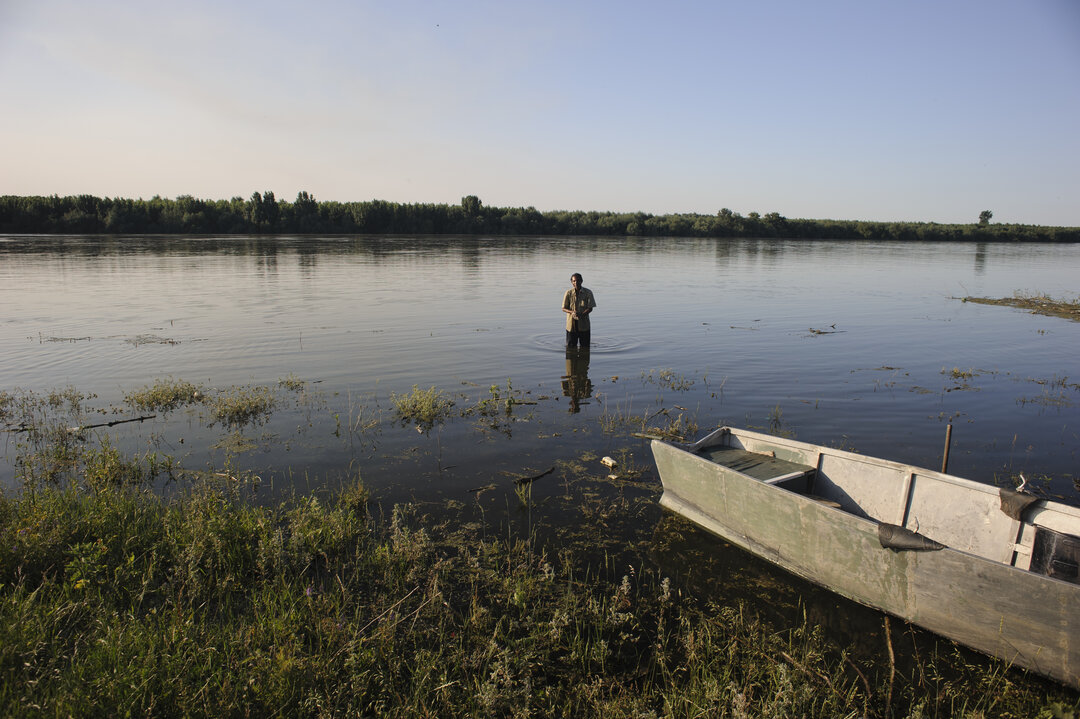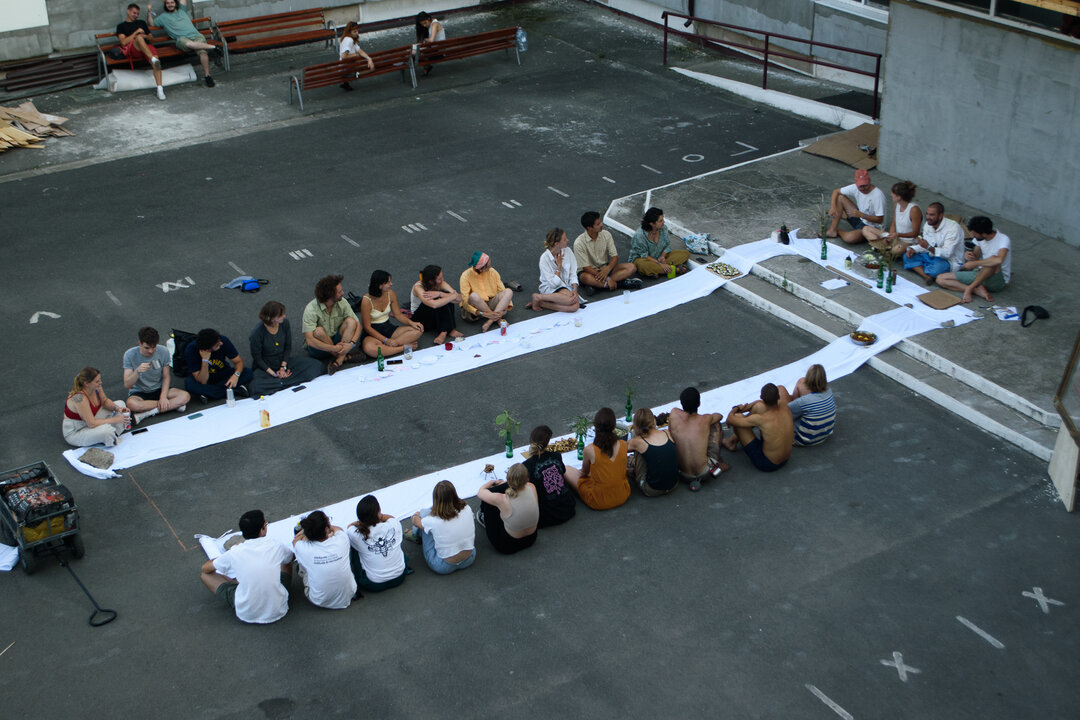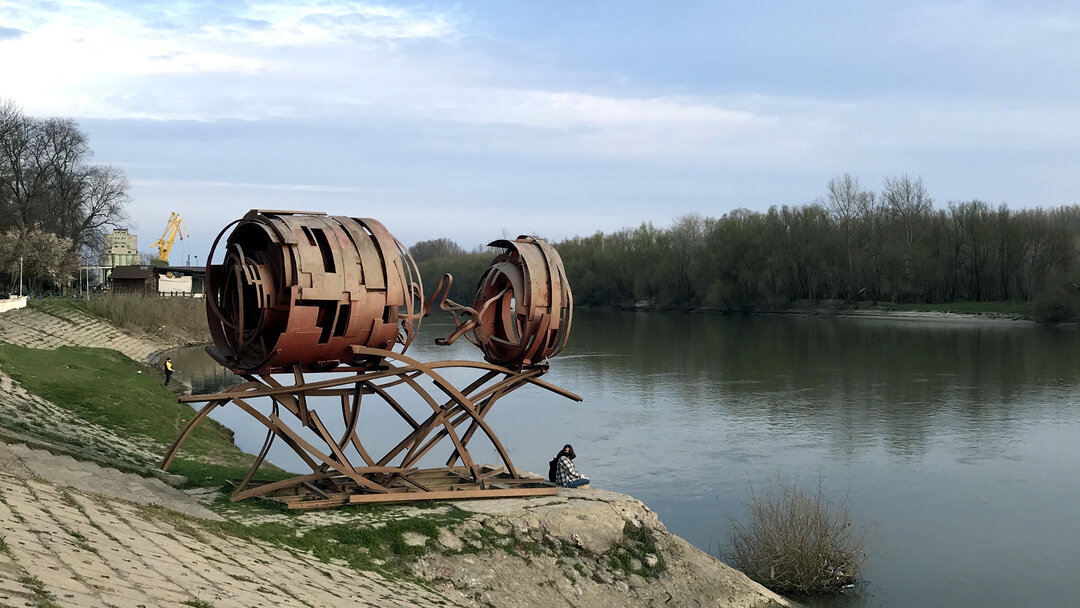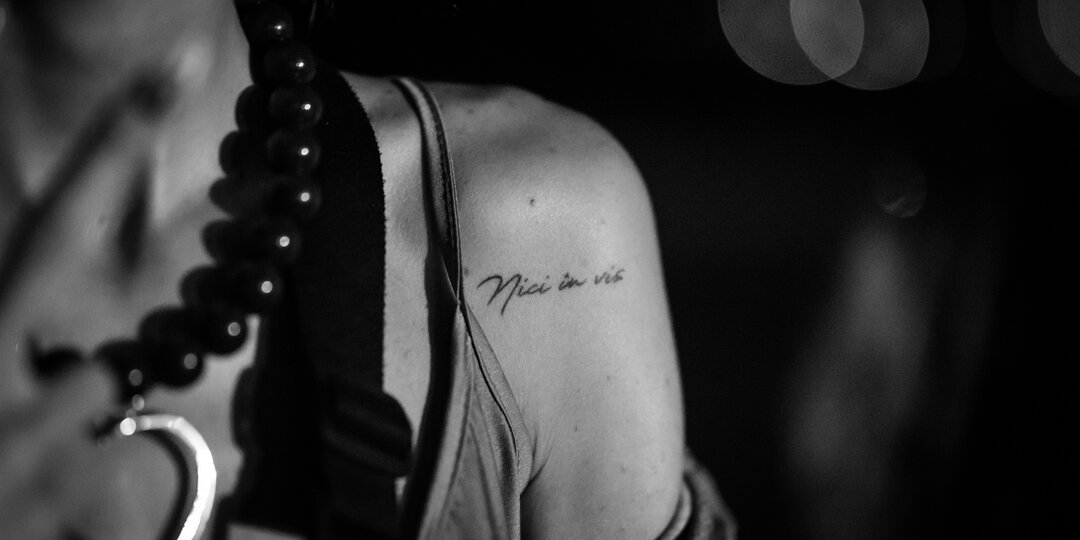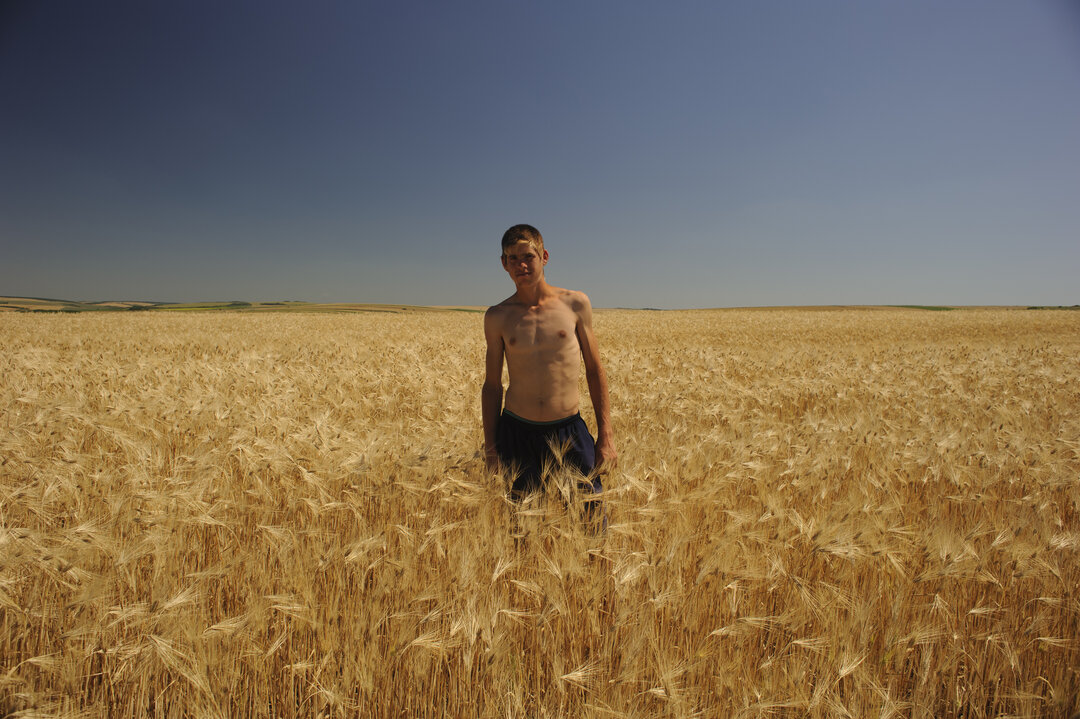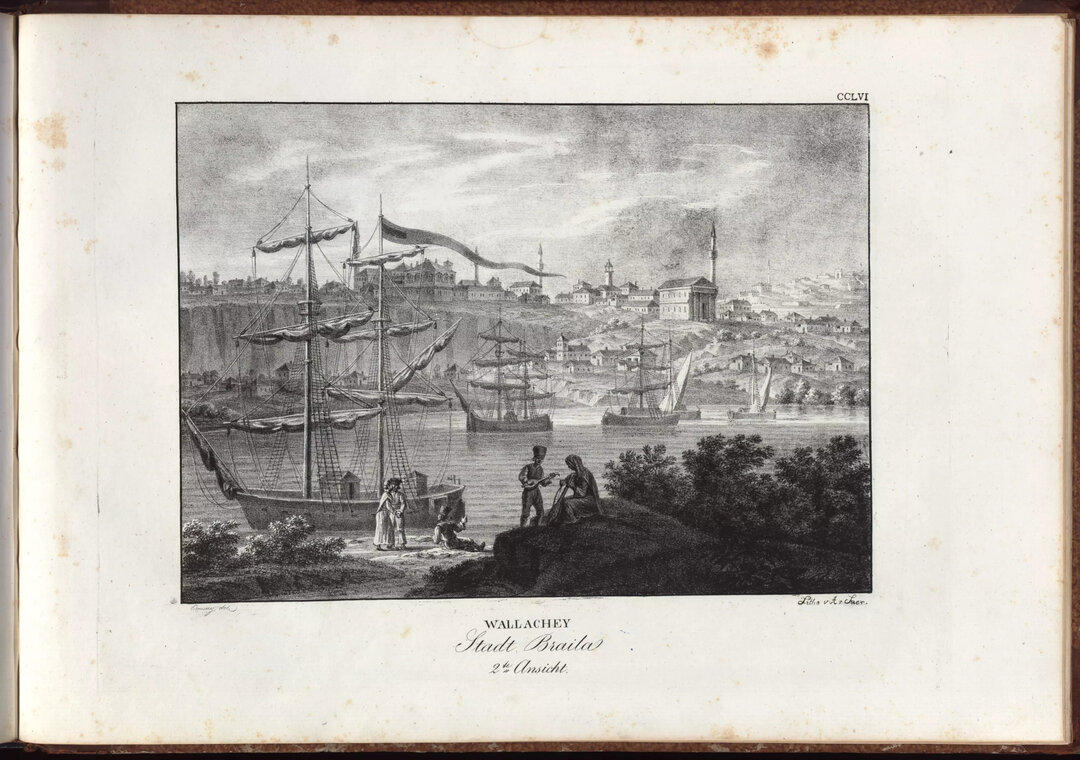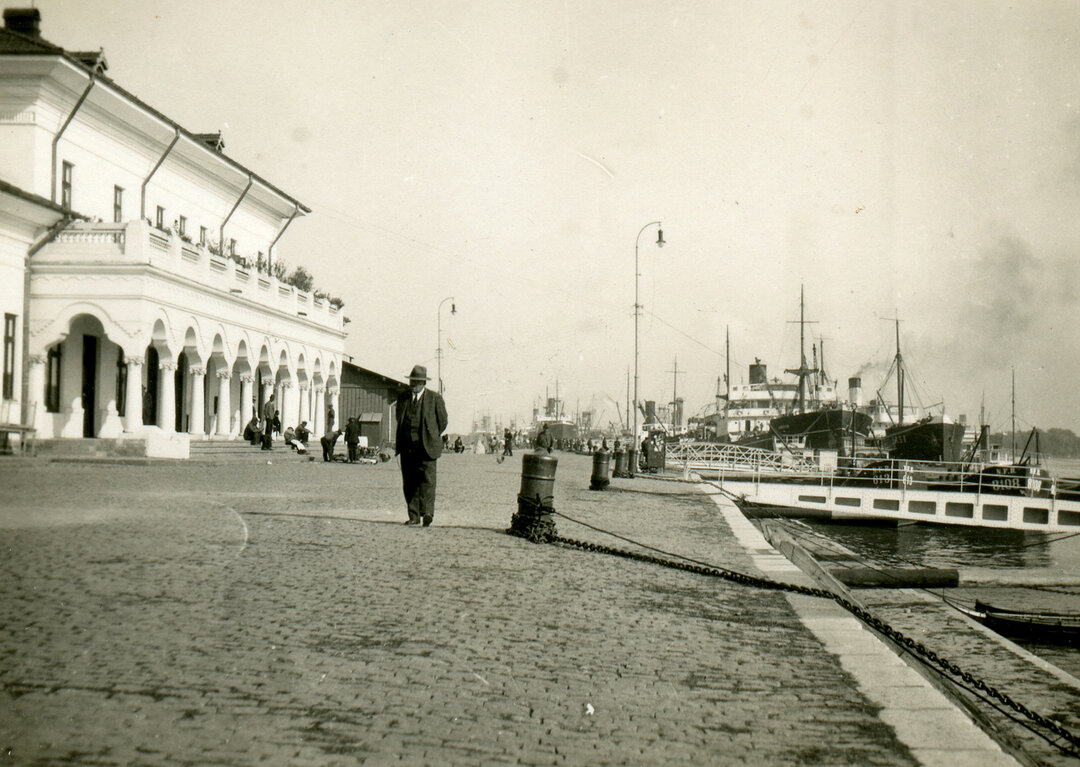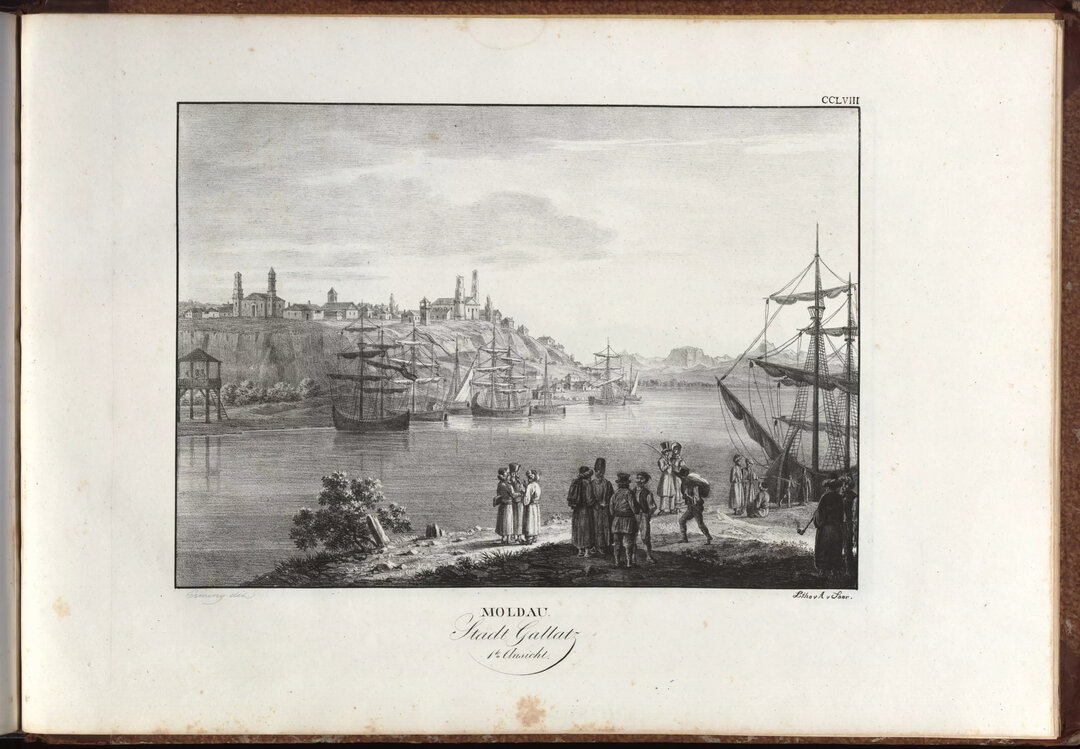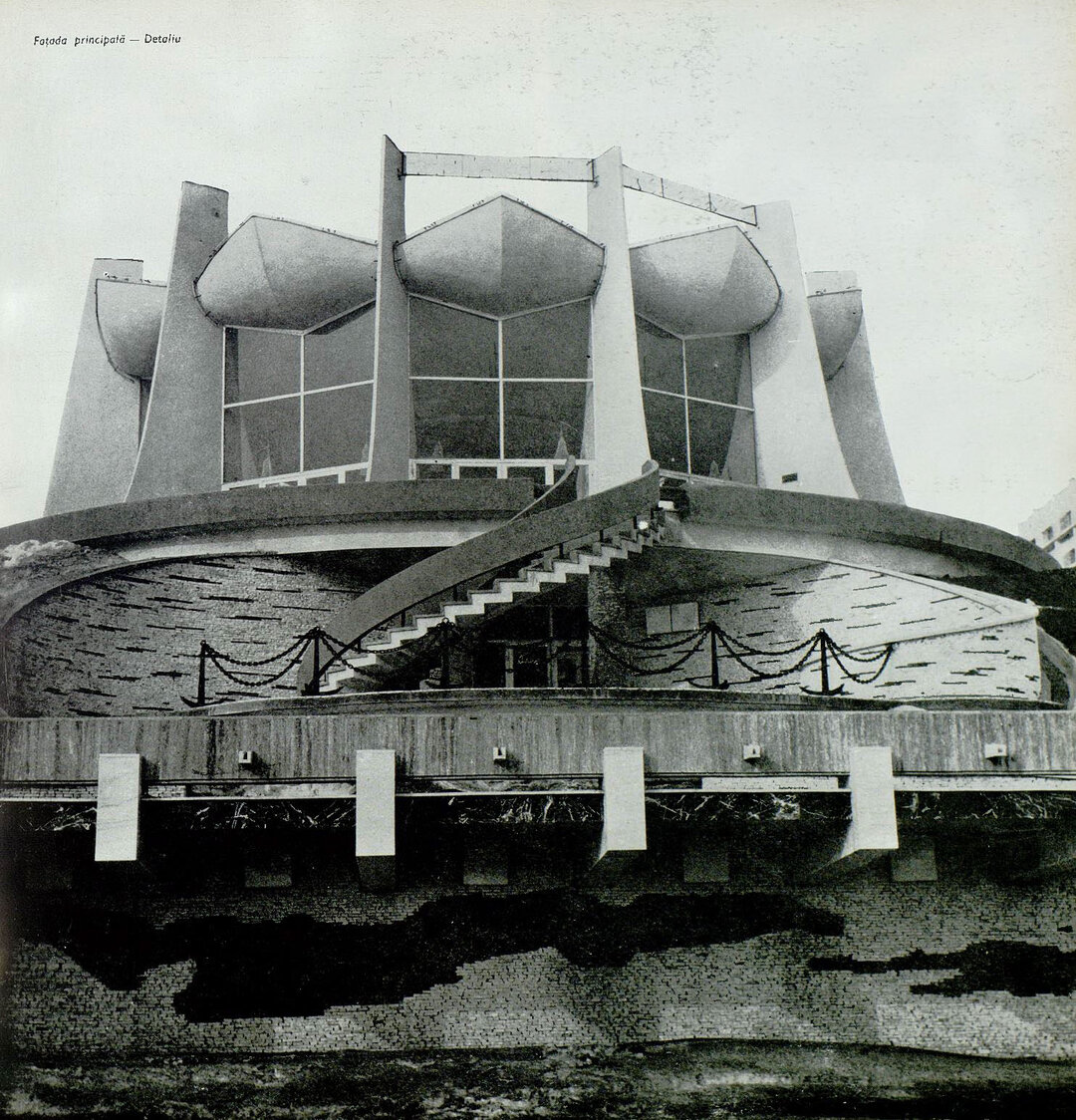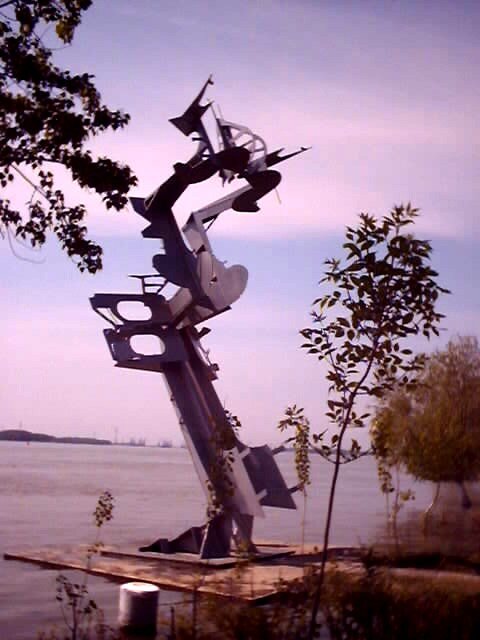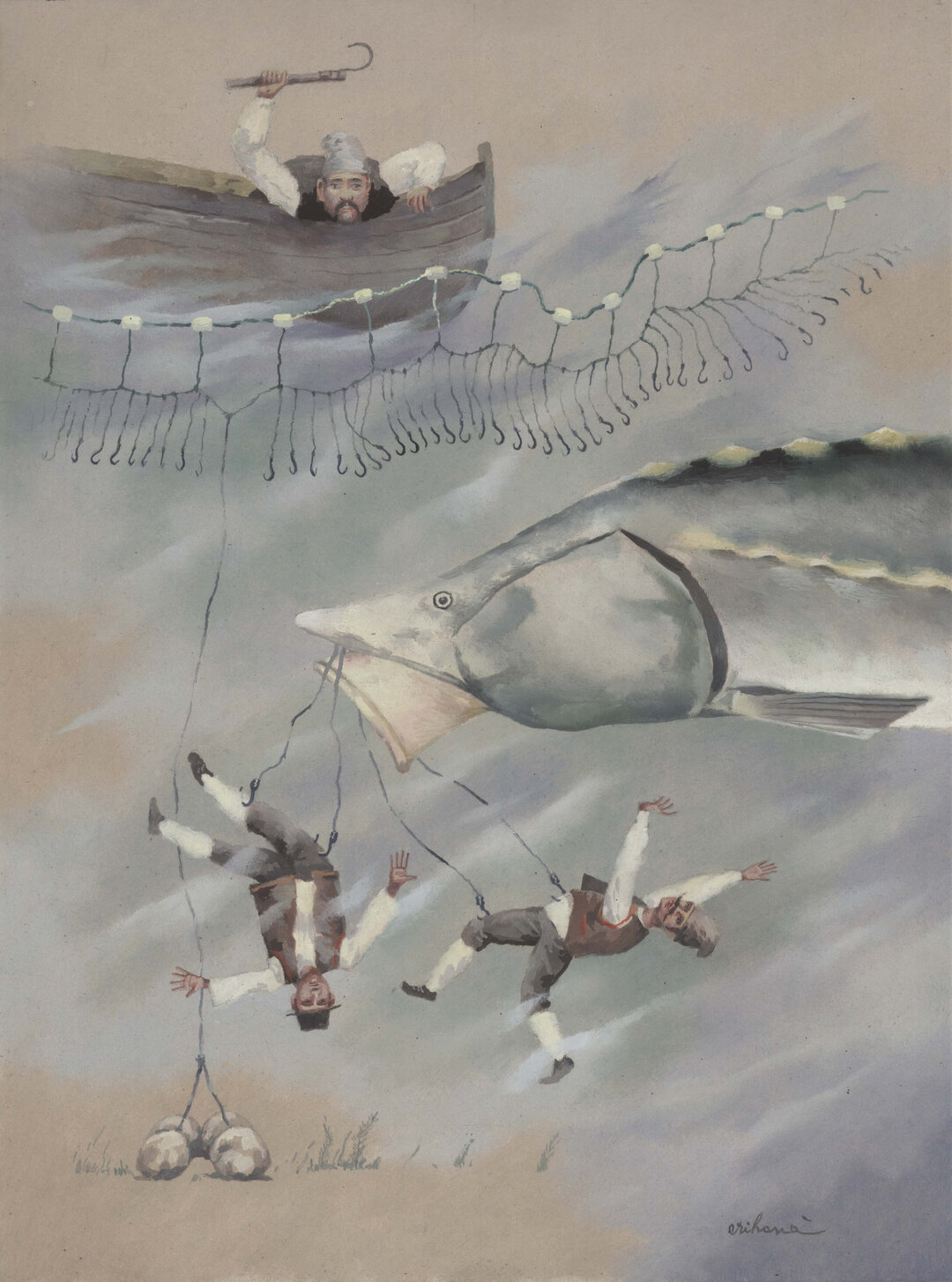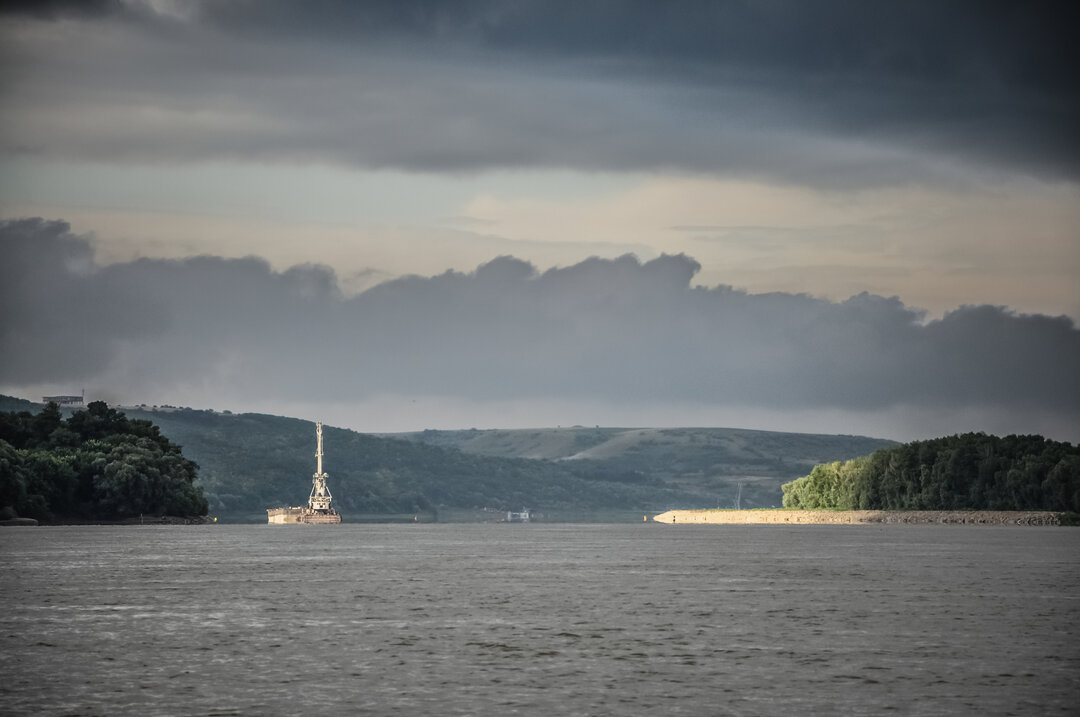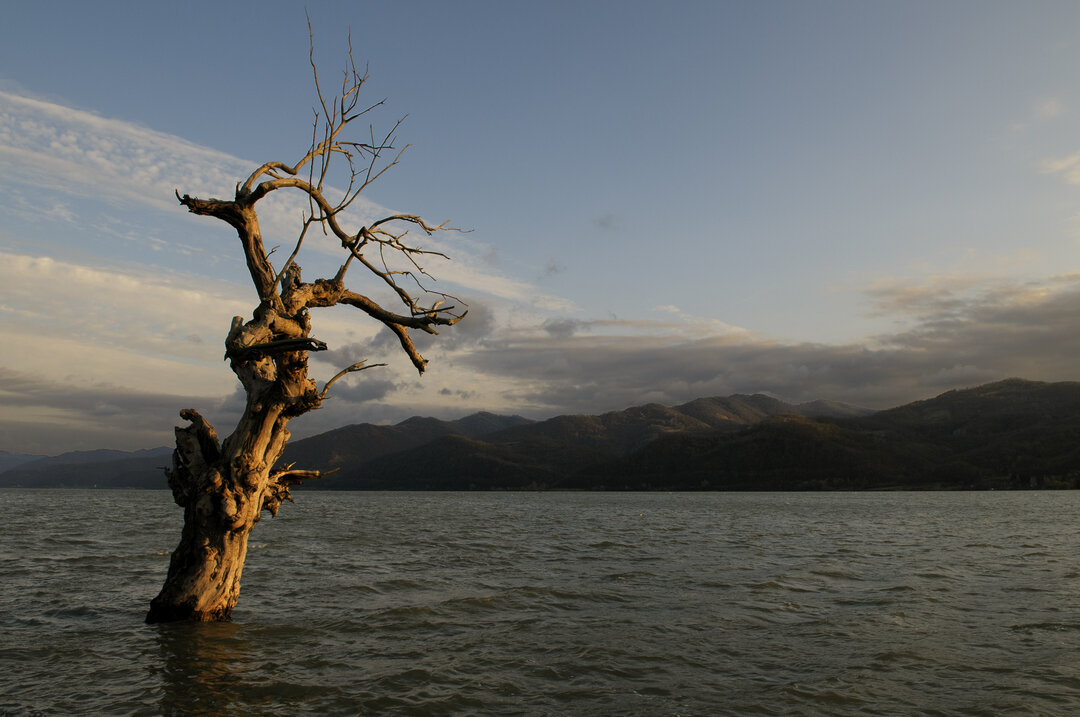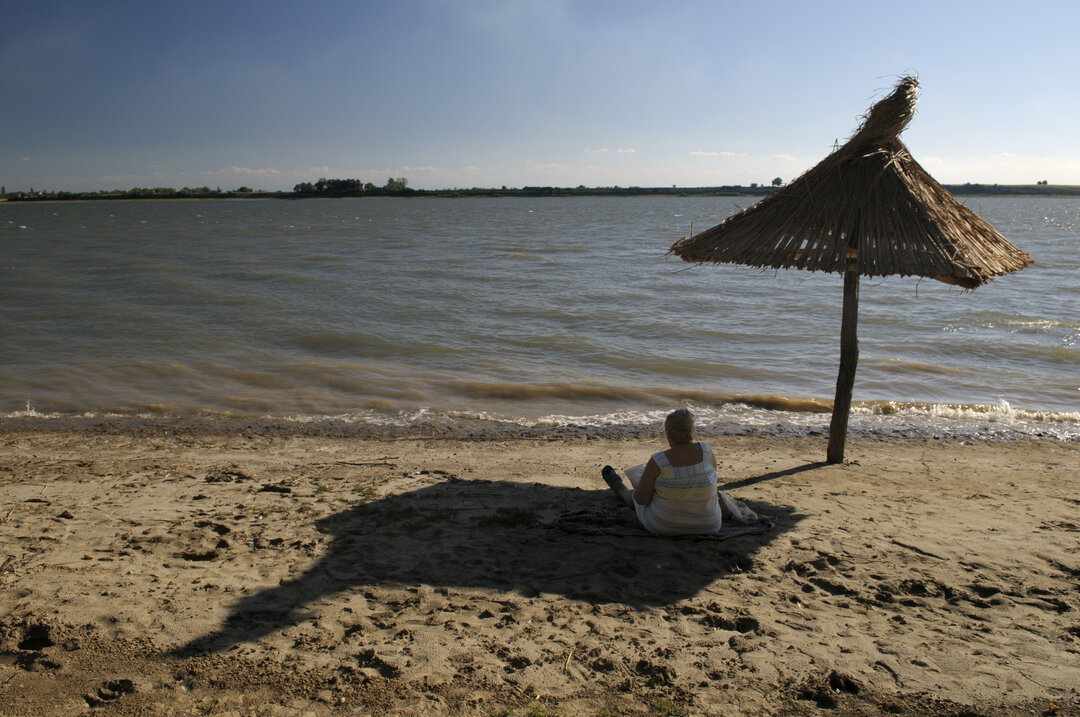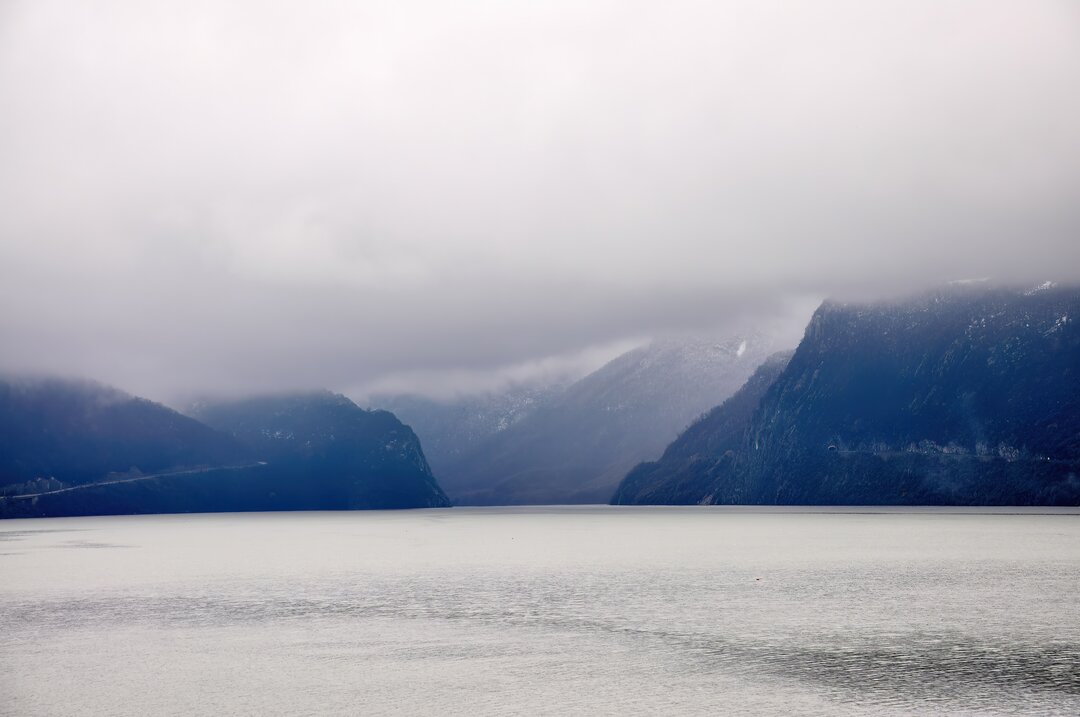
Aegyssus
City of angels
In 1997, in the preface to one of my books of poetry, I wrote: "I belong to the Danube and the Tulcea cliffs, the cliffs of my adolescent imagination. The space there, narrow in the end, but - for that very reason - saturated with being, has calligraphed me. All the memories of those times are still playing out in the theater of memory, with landscapes in the background: sometimes aquatic-Lipovanian, sometimes realist-socialist, with a Bolshevik sun setting behind the alumina and ferro-alloy plants: local, of course. From time to time, a local newspaper publishes rhetorical lines about my books or the places I have been. The whole of media Tulcea exulted in solidarity when I went to Oxford, and when I crossed the ocean, the euphoria was complete. I appear on television - fleetingly, how else? But the city sees me doing interviews at rush hour for a year. On the radio, the people from Toulouse tell me, I appear curiously often, even though I haven't been on the radio for a while! They invent me. In a small way, therefore, I already belong to the legends of the place, having saved my posterity by the very act of betraying it. If I had remained an architect there, I certainly wouldn't have had any fun. A student of mine from Tulcea even seemed displeased, having to meet me for real: I was much more interesting that way, incredulous, with my picture on the panel of the leading lights of the "Spiru Haret" High School, or in the magazine Aspirations.
1. Where?
Dobrotici baptized us.
Calcar breathes calcarolacii
of Dobrogea: coșcove and roșcove,
Venice without intention. Turtles and convicts quench lime.
The sea is Greek, and the chrysanthemum is Slav;
the horses are Tartars; the homeland is the shore
of a canal. We belong
others, mouths of quarries.
- Loess, wait, do, at least thou here!
Leave the fucking Turks alone.
2. DOBROGEA BAY
Trains rumble through the limestone provinces.
The duck with the banyan. Hedge. Drought etceteras.
Nitrates in bulk. The station is the cry itself writing itself:
- Am I the boss of it or not?
Landscapes and others
where thirst and thirst barks, and then the poor little brat
when he shoots the androcephalus:
WATER TOWER. It gives shade.
And shortens the dogs' tongues.
3. AALBORG
(...) "Poesis magazine thus reminds us that we should not judge poets by their mundane and diurnal appearance, but by the height to which the wing of their nocturnal flight soars. The rich summary of this issue makes the Pashoptist dictum: "The Romanian was born a poet", and still a poet endowed with great talent, as relevant as possible. The only poetry magazine in the country is a brilliant showcase of talented and very different poets, on the same page the "postmodernism" of Augustin Ioan from Tulcea (currently an assistant at the "Ion Mincu" Institute of Architecture in Bucharest) fits very well with the "traditionalism" of Radu Ulmeanu from Sătmăre, both published in the "Poesis Library", from which each reader can take what he or she likes, according to his or her own taste. This is the realist-derizorical vision, animated by a corrosive sarcasm about the city of his birth, that the "optzecist" Augustin IOAN proposes:
Ships sway in the harbor, ultramarines. The navy rinses its submarines in the river.
There are no more masts. Just wet rope, anchors and barges.
Dockers sweating on the pontoon.
From the railroad station with its concrete lotci
to the monument of state independence the municipality is a gangrene, and Dobrogea - a
a quarry, stripped by the Turks, from which we look towards the motherland, from which everything depends between two gales.
Fog is twinned with industry.
Tulcea is twinned with Aalborg.
Whose citizens teach us
political zoology.
That: why do we wear alumina caps?
That: why do we rejoice, dance dances, sing songs, sing hymns of glory, when the Danube is sinking
around the wreck-city?"
4. THE FALEZA
The waterfront is where Marius set off in his go-kart. The ladies come out in their lanyards and, prey to our gaze, let themselves be maidens in rut, defying us: they have a flat on the cliff as a dowry, you innocents!
Beggars from the combine.
Moldovans from the shirt factory. Red-haired, hospital sisters.
Ramona with no teeth, Ramona with a dog.
Schoolteachers with subing.
Industrial school teachers exiled on assignment, leaving on Saturdays
to mom and Abdullah.
The waterfront: geologic layers, family trees. We, the pupils, the earthmen, we, the students, are not counted on. Only at the end do the defeated return to the cliff: they let themselves be chosen by the mothers of the edge, they belly up,
grow gills, wear tight shirts.
The white is pure. The females
the collar of her husband's shirt,
so that we, at once:
Nature's thing is wise: how he parades on the cliff and breaks seeds!
5. BARBU POPESCU
Cold banks. Blackboard. The first secretary is in English class he came from Canada and he does justice to the poor he walks through the markets during the day and locks up the meat machedon the people worship him and he brought us records with abba, he will approve to make disco in the basement of the high school but with patriotic poems and until ten in the evening but they kicked him out they exiled him to Ethiopia the workers wrote his name in chalk on the staff wagons and tov bobu made the meeting to unmask tov popescu barbu the machedons feasted that night since the creation of the world it is still dark.
6. CIVIC SQUARE
"Deltar" preserves disappear from the cannery, "Tulceana" beer disappears from the brewery, cornier disappears from ICNUT, meat - from Cota, cigarettes - from BTT, calculus and foil - from SPJ. Blue-geans are stolen from Navlomar. The flotilla runs aground at Pescocean. Sand leaks from the sands.
(Belvedere Mircea's statue Eminescu's artifacts near the furniture consignment consignment nail shop Egreta's adasul Aida's Aida's Aida's Tosca's symigeria CFR agency Diana's craftsmen's cooperative, school inspectorate)
Province: limestone and circus and Fanar.
Nothing eternal, all come and go.
Only the square remains of Aegyssus,
strangling its first secretary.
I like this status, I tell you! The fact that I am writing, traveling so much, has no gratifying significance for my ego, I admit with my hand on my heart, except in Tulcea. Here I am local poet (but who is otherwise?) of genius, world-renowned architect and publicist. Good genius of Tulcea, protect me! I was, for a fraction of time, in the mind of a female, even the "Aristophanes of our years"! Well? Is this not glory? Is it not what we're working for, covering up the derision?
The mechanism is now walking on its own, feeding itself and devouring me: my gestures, my wardrobe, the woman, the new house and the dog are commented on. It's all through the prism of the local imaginary: for this one, perhaps, I have escaped into the open sea".
In the meantime, at the end of 2022, on the Day of Dobrogea, I was made an honorary citizen of the city. I was, I won't hide it, surprised and excited by how many people came. It is, I hope, just a matter of patience (or, well, posthumousness), until my bust will be added to that alley of the sons of Tulcea, to look into the century with empty eyes at the station always missed the return home ...
But the invitation to write this text, about what it means to live on the banks of the Danube, has a broader meaning than my poor experience - and not even that in full: I was born in a village in the Casimcei lowlands, in the commune of Dorobanțu, jud. Tulcea, not on the banks of the Danube. We only moved here, to Tulcea, in 1975.
A few general things can be said about these towns and this riverbed. First of all, it seems to have been not only a navigation route to the sea, but also, conversely, a corridor for the westward migration of the first groups of Homo sapiens that migrated from Africa to what would become known as the Middle East, the southern Anatolian space, Iraq and Syria. It didn't always divide tribes and peoples: the small empire of the Assynes was on both sides of the river, just as Dobrogea is on this side of the river to Muntenia to the river (sometime in the future there will be a third bridge across the Danube; you'll have to take my word for it that I am so old that I remember the Giurgeni-Vadul Oii boat bridge perfectly well, and I have crossed it many times by ferry from Ghecet/Smârdan; in fact, this summer, I had the revelation that they are the same as they were fifty years ago...). I should also recall that their presence in Wallachia did not mean that all the towns on the Danube were also Wallachian; some of them remained for a long time racial and cosmopolitan places (like Sulina, but Giurgiu was also said to be a place where dogs with pretzels in their tails used to roam). Through Giurgiu passed the trade roads from Transylvania and farther on, from Leipzig (from where we have Lipscani Street, in Bucharest), noting that, after crossing the mountains to the south, the cities were laid out as far as one could travel in a day: Ploiesti or Targoviste, Bucharest, Giurgiu. Further to the south, in Dobrogea, what had once been a busy harbor has faded away: the fortress of Floci, where Michael the Brave was supposedly born. And further away from Giurgiu: at Arbanasi, in Bulgaria, is the home of Constantin Brâncoveanu, now a restaurant now in disrepair. Brăila was also a rich city, predominantly Greek, a city of grain and sheep traders, cosmopolitan and, like several others, with a pre-established plan, with circular arches facing the Danube, in an amphitheater (as is Pest in Hungary). The prevailing architecture, even in the raiale, was a faded neoclassical style, with wrought-iron balconies, perhaps with colonnaded partitions under which, in the shade, one could walk, as in Tulcea. This architecture was, believe it or not, Ottoman, almost phagocytized into the official language, like the Russian Baroque, through Peter I.
So structured, radial and concentric, could also have been Tulcea, my city, in its turn a raia, part of the Ottoman Empire like the whole of Dobrogea, because the amphitheater already existed: this is how the hills are arranged in a west-south-east arc, with the loop of the Danube to the north, towards Bugeac. It's just that some great architects have destroyed this potential by building some shameful prefabricated blocks, like an east-west wall, closing this natural amphitheater forever, I'm afraid. Some great Tulceni artists have made a coloristic study, how to paint the prefabricated panels to resemble the architecture, you know, the rural architecture of the puddle... I don't know if the authors-urban planners and architects-are still alive, but if they are, they should know that they are taking the disfigurement of Tulcea to the dreaded judgment. Back in the 1980s, Professor Sandu was giving us this example of urban and architectural idiocy, which for me resonated even more strongly, as I lived through the process, having already been a Tulcean when it was realized.
Then they also built the embankment towards the cliff which, with any rain, floods the entire city center from the sewers, as the waters no longer flow towards the Danube; but, from the Danube towards the city, as a matter of fact, they have not risen. I once saw the Danube completely frozen, crossing it on foot at Tudor Vladimirescu, the village opposite, but also several winters with sloes that made absolutely awful sounds, as if they were living...
I didn't catch the demolition of the Turkish city center, with the shops under the columns. But why was the civic center built far from the Danube, when it is clear that the waterfront is the center of the city, the Danube is that strange attractor that polarizes both geography and people's lives? A stupidity: reflective surface in a climate like Tulcea's? And, after the dike was built, the Danube disappeared from the Tulcans' sight. I'm not rehashing the history of the so-called civic squares or their acro-maligned shape, the new civic center of Bucharest. The first civic square, equipped with PCR county headquarters and all, was in Focșani. The last - in Satu Mare. Not long ago, a scandal broke out there: they want to redo the pavement of that strange ensemble, and the fan club of architect Nicolae Porumbescu, its author, sees in this gesture a desecration of his memory and work, the whole ensemble should be treated as a historical monument. Now, all strung together, it all speaks of propaganda, increasingly noisy, architecturally speaking. Therefore, the transformation of propaganda markets into spaces planted with trees, into forests, would be a symbolic counterbalancing of the effects, not seldom harmful urbanistically (demolitions, rewriting of historic centers), of these spaces that would only now become truly public spaces.
7. CALICA
A black painter came
in the fair of white painters.
They create in the creative camp
over which the yew from the spirits dances.
At the landscape: passing ships
passing barges pushed by pushers
among the red buoys among the white buoys the sirens of the good Roaita wail over the harbor.
Still life: from above, from the Delta, the water is lazy, the blocks roar in a wind,
furnaces vomit
metals.
Paste painters make siajes,
dipping in alum powder
brushes smeared in turpentine,
they paint the city, they paint the city, they paint the city,
quench their inspiration in vodka again:
life is shorter than creation.
8. ANAFOR
The waterfront, they cut it up, to pour their milk into the water. For eternity was not born at Aegyssus, though Jesus would have known how to tread the river on his gullet.
From above, from the Delta, you can see the anamorph - the Danube changed. Where one swims to Zalmoxis. The Leviathan at the center of the earth lurks.
Only I and the priest of the Greek church prophesy that the sorbul is near. Citizens, be smart! A bon entendeurs, salut: I am only the poet of the city, not the savior.
9. HYMN OF THE REVOLUTION. IN TULCEA
Popescu Barbu, who looked Mengistu Haile Mariam in the eye,
they brought him with cement mixers, to make him head of the balcony and to give him an ad-hoc couch that very night with the citizens.
Not even a shadow of a militiaman. The Security Service has become the Carpathian pistol barrel, it's become brother to the snakes in the bottom of the earth. The navy and the firemen are with us.
We are revolutionizing. Flags, rifles and rumors from the capital. The brass band erupts from Thursday's bandstand: cymbals, kettledrums, brass pipes full of drool.
For there is waltzing in the civic square. Mircea's stallion cadences his bronze hoof to count the votes.
The Danube collapsed in amazement from the Black Forest. God hardly breathes, lest he disturb us in the exercise of democracy.
10. KOSMOSMOSKAU
Night after night, the wanderers wait on Tulcea's firmament, lest the maidens, the spirits, get lost down here. When they expire it's fog. Aviation adds to the water, and pushers become submarines from such breaths. But at feasts it's the other way round: when the unadorned breathe in, drowning rises to the sky and migrates to the warm seas the scabious. As for the sparrows, they tangle their beards like bats. They have to shake them, so that the Danube rises from Reni to the cemetery of Soviet heroes.
The second argument is micro-climatic. In such enormous areas, created by demolishing pre-existing historic centers, mere gathering places for the masses to worship Ceausescu, but which serve no purpose other than overheating the cities where they are located, urban forests would, on the contrary, have a weighting role: shade, coolness and oxygen, all of which are lacking, or insufficient, in the local municipia (the correct Latin plural). I don't think we're likely to see forests or public gardens instead of stadiums, instead of maidans, any time soon. But we may see, without exorbitant costs, as in Tulcea or Satu Mare, a symbolic and climatic normalization, at least in these poor county capitals of the motherland.
What was life like near the Danube? First of all, in an ethnic diversity specific to the whole of Dobrogea, which the communist regime had started to... rectify, by employing exclusively Moldovans in the ferro-alloys and alumina plants (the Moldovan-Slav accent was generalized in Tulcea, where literary Romanian was spoken before). I had classmates from the Lipovene, Turkish-Tatar, Ukrainian (I am, only after my mother, a Hahol with grandparents who were refugees at the Holodomor, near Kharkov, in 1932); but in Magna Dobrogea there are also Italians (in Greci), Germans (in Malcoci) and other various ethnic groups, such as the Kerek, the Aromanians of all declensions, Bulgarians who did not go to Bulgaria when the population was exchanged, and many Greeks. When we were children and teenagers, we were friends for playing, walking along the promenade, going to camps and Olympiads; when we grew up and went to university, things became separate, the ethnic/religious criteria being that of marriage, for example. We had no problem living among so many different languages and religious edifices. We had the feeling that we were far away from the country, from its core, but each was marginal in relation to other centers; but it was not an acute feeling: the place is, even now, itself enough: it had, in the nineties, a UDMR deputy, very appreciated at the time, although there were only two Hungarians in the town, husband and wife, dentists. But when the redistribution...
About the post-war architecture I have only a few more things to say: the house of the book in the first place, resembling a bit too much Paul Rudolph's Bostonian architecture, but interesting for the early Romanian eighties: for a while, it had an interior garden, enclosing the staircase of honor, but... Then, there was the experiment, not necessarily intentional, in 1980-'81 with the blocks on 11 June Street, today 1848, of Mr. arch. Hamza. The structure, pillars and beams were poured, we were shown where there had to be bathrooms and, because the workers had been taken to the Republic House, the future tenants were told the facts of life, as the Americans say: you want apartments, you make them! And my father built ours, together with the other neighbors, and I was carrying mortar from the bottom with two buckets, up the stairway, without steps. Don't let anyone ever tell me that I didn't do any building work...
Otherwise, the food was similar and centered on fish, which was still plentiful then. Stuffed pike, which is a Jewish recipe, is a delicacy the likes of which I don't think I'll ever eat again. The sweets were ethnically diverse. I'll never forget my coworker Serin's baclava and saraili.
11. ANGEL, MY ANGEL C. MITEA
My goodness gracious
- triangle eyes - anthropomorphic and bearded above the tin roof.
Popa Metru incenses him on his big days and smells incense over stars and chirils: the Soviet soldiers in the Cemetery of Soviet Heroes are unraveling into those from which our heroes were generally made up.
Jesus is also a bearded baby: in the depths of the dome he points north and south to the right and left before and then - agent of blood circulation through the arteries, that you cross yourself.
It's not funny, kids! If we look at the monument to independence from above in our neighborhood, where the sensation is nevertheless produced by a steamer's penguin, about which even the Delta has been written, is that not enough for us to believe, of nails on handkerchief in the morning care in the morning, or nail marks in the slaps of nice people are we still looking for?
12. Tulcegării
In the glory of crepe paper,
the Slavonic swallows the gods of the Lips.
The cherry blossom is dripping like a pleat.
In the hill to Comorofca you call me.
I pak ibovnică ibovnică you are arare to me:
The moon is thinning like a hymen,
or else a comet, a comet that forebodes evil.
Let no man look through thine eye,
as through a glass in the eclipse.
And if I cause the missing earthquake
in thy flesh, I'll make it so
atone. My straw is stiff, fixed.
Thou liest, and never giving me time
to the drunken water, both of us!
13. BAIRAMINMINTIRI
Tulcea is fading, the Turk of Garofița is gone, though he had the recipe for the pinkest rose ice-cream in town. Before time, the city floated among the rosy clouds, from which the muezzin sometimes appeared swirling in the bowl of whipped cream. On the Hora's colonnade lasted minarets of foam shading the river of pungent brifcor.
A harem of cadanas
chosen harem of caddesses placed models of the catai on the tables of the first secretary
to endorse them. To fool every tulcean after the delights of Paradislam.
Yes.
We ate petals
with a soft spoon.
I was sitting on the terrace of the mournful cafeteria.
(She told no one, not even the management).
14. SOMETHING ABOUT THE NATURE/CULTURE OPPOSITION
They killed the clockmaker under the columns.
Daddy's godfather sold nails for a while right under the nose of the county party council,
then hung himself. Uncle Milica died of cirrhosis.
Marius went go-karting into the deep. His grave
is next to Milica's grave on Eternity Street.
Tulcans die broken down.
The Marble Factory worries.
Horses and valtropes. Parade, illumination.
The naval fanfare through bugles spits at its dead.
They shoot the starlings, then comes the pope.
A balcony collapsed on a citizen
while sipping his coffee at the Union.
The dead sink down the limestone hill
till they hit the water table.
The rest is the circuit of water in nature.
15. EPILOG
With Marius Tulceanu through the labyrinth.
With Laurențiu Vasilief at the pub.
With Nelu Marcu in the basements in summer.
With George Dumitrescu at the Deer.
- Ubiquitous memory, adolescento!
Eternal Tulce!
Falezo!
Weep for us,
for we loved you!
And today we are strangers to you - who in the Empire, who at the agricultural bank, arm in arm with our apterous women, reproducing ourselves on the block - and we no longer belong to you.
Go to the Danube
everything,
everything,
for we died to each other
this county town
at the mouth of the delta, city of angels:
Aegyssus!
In the meantime, the Delta has been destroyed and I don't see how this ecosystem can be restored, which has been invaded by the combine harvesters and concrete mixers. I wrote the design regulation for the Danube Delta, the last HG of the Tăriceanu Government, which has since been replaced because it seemed too restrictive to fellow architects. I was even told, at an endorsement, that I was denying the Delta the right to modernization, because I had removed the concrete... But for more, see the previous issue of Arhitectura, dedicated to the Delta...

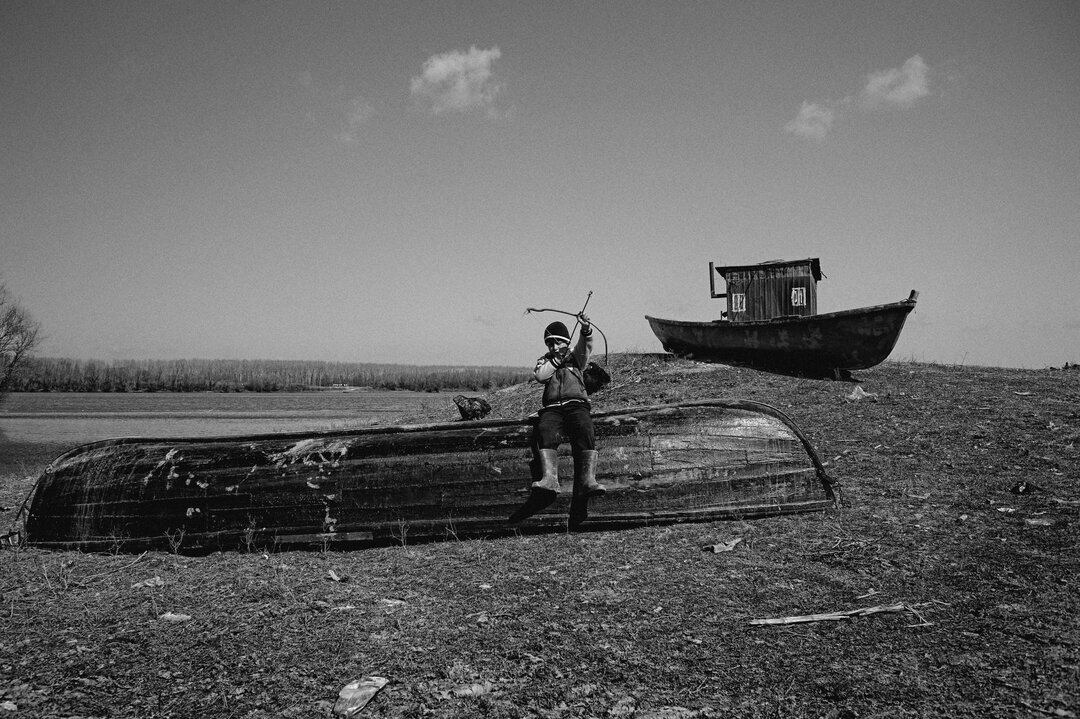
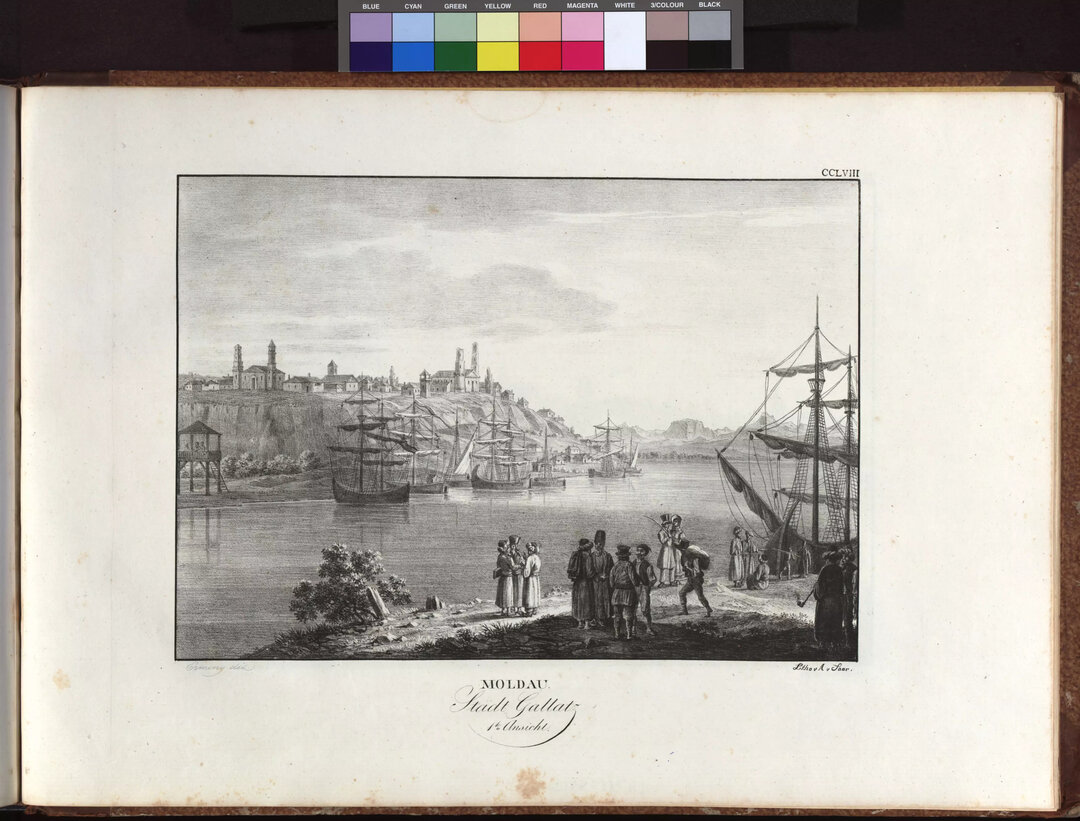
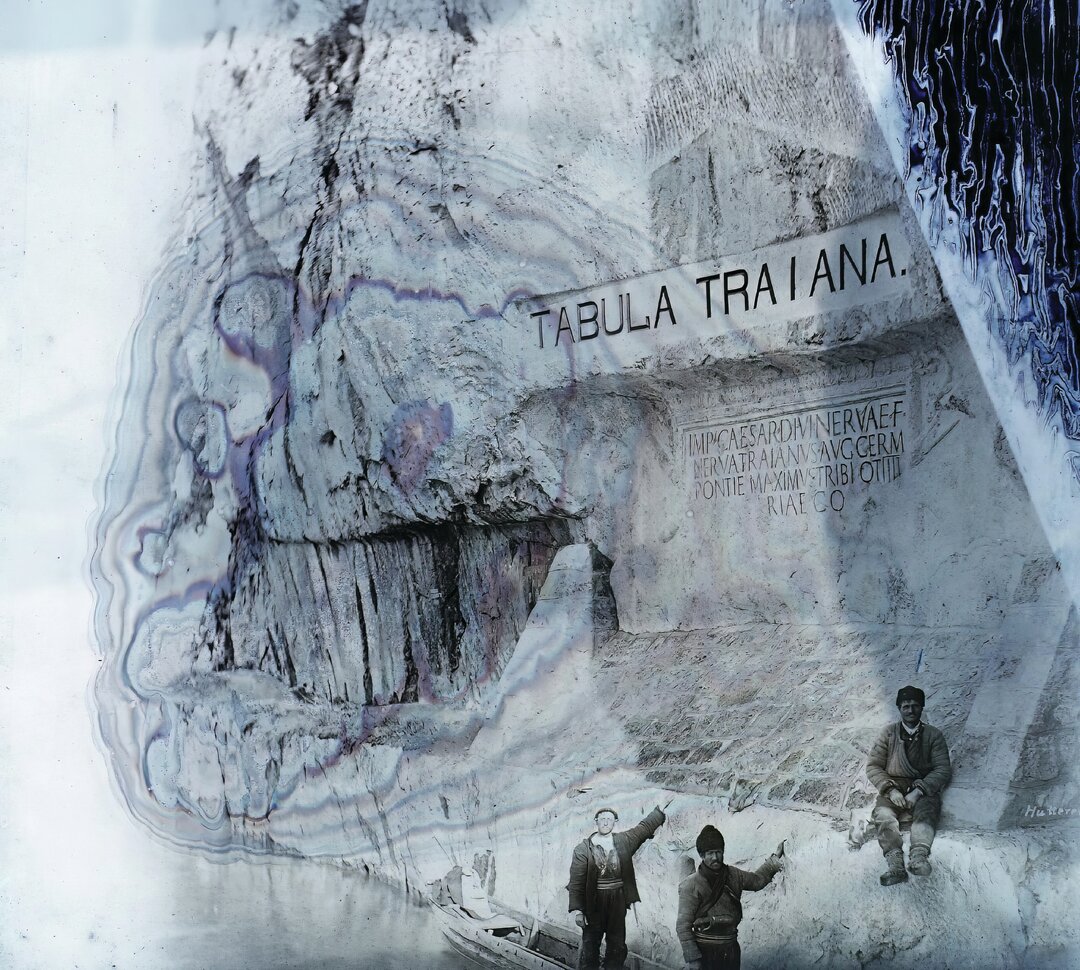
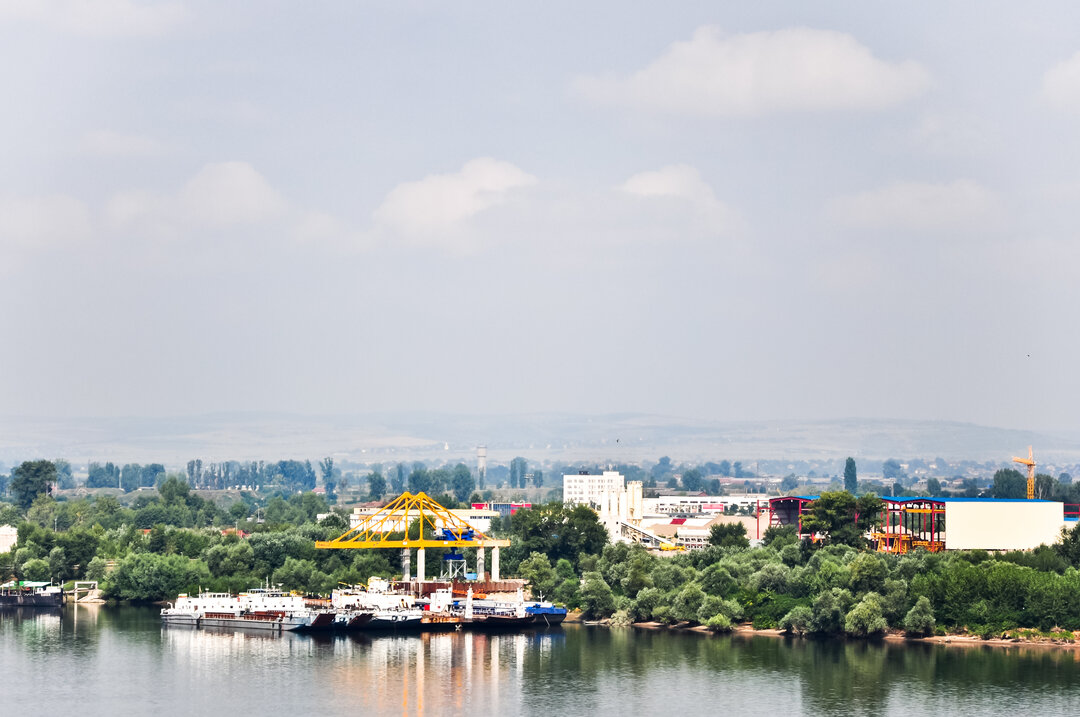
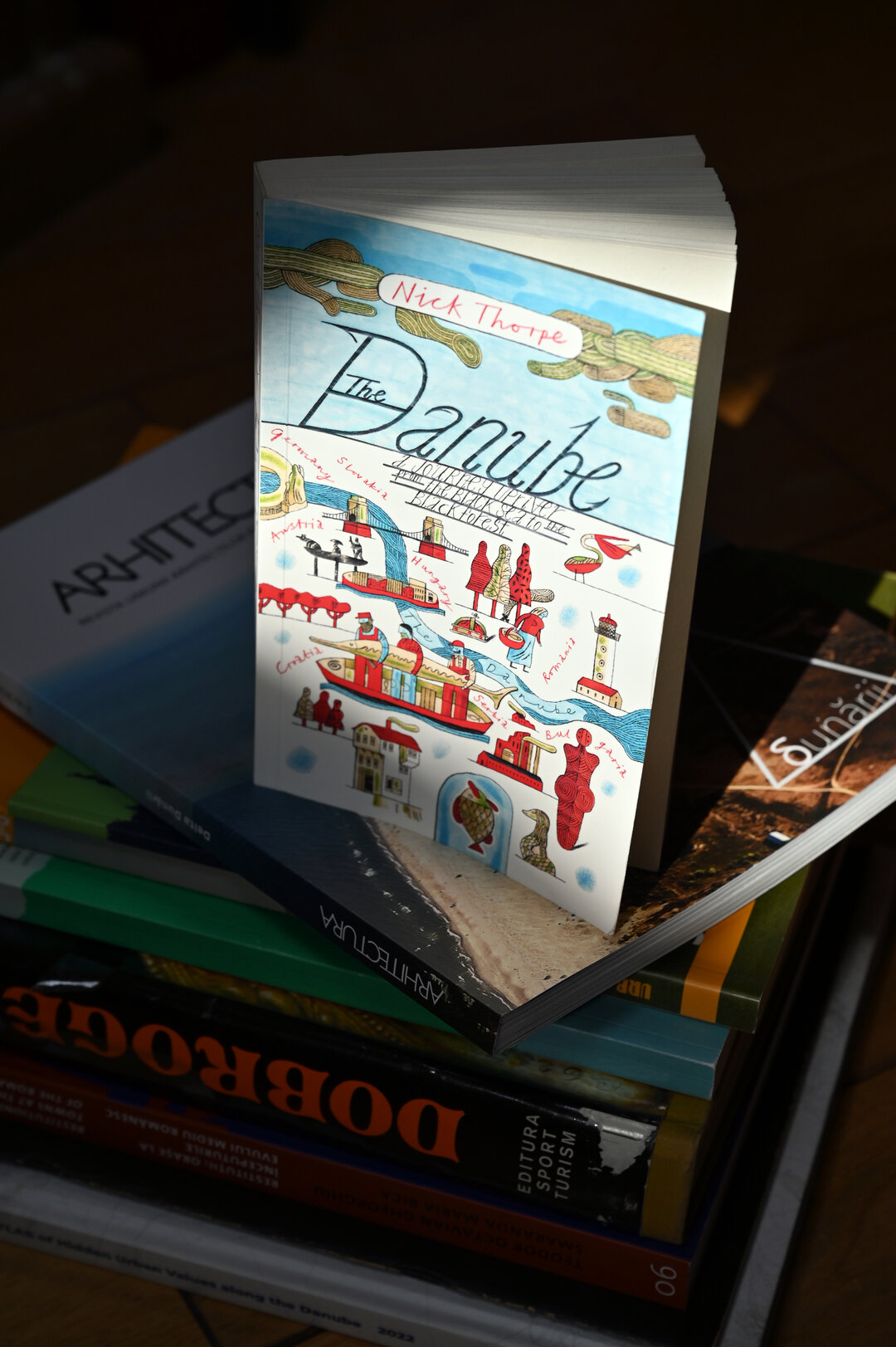
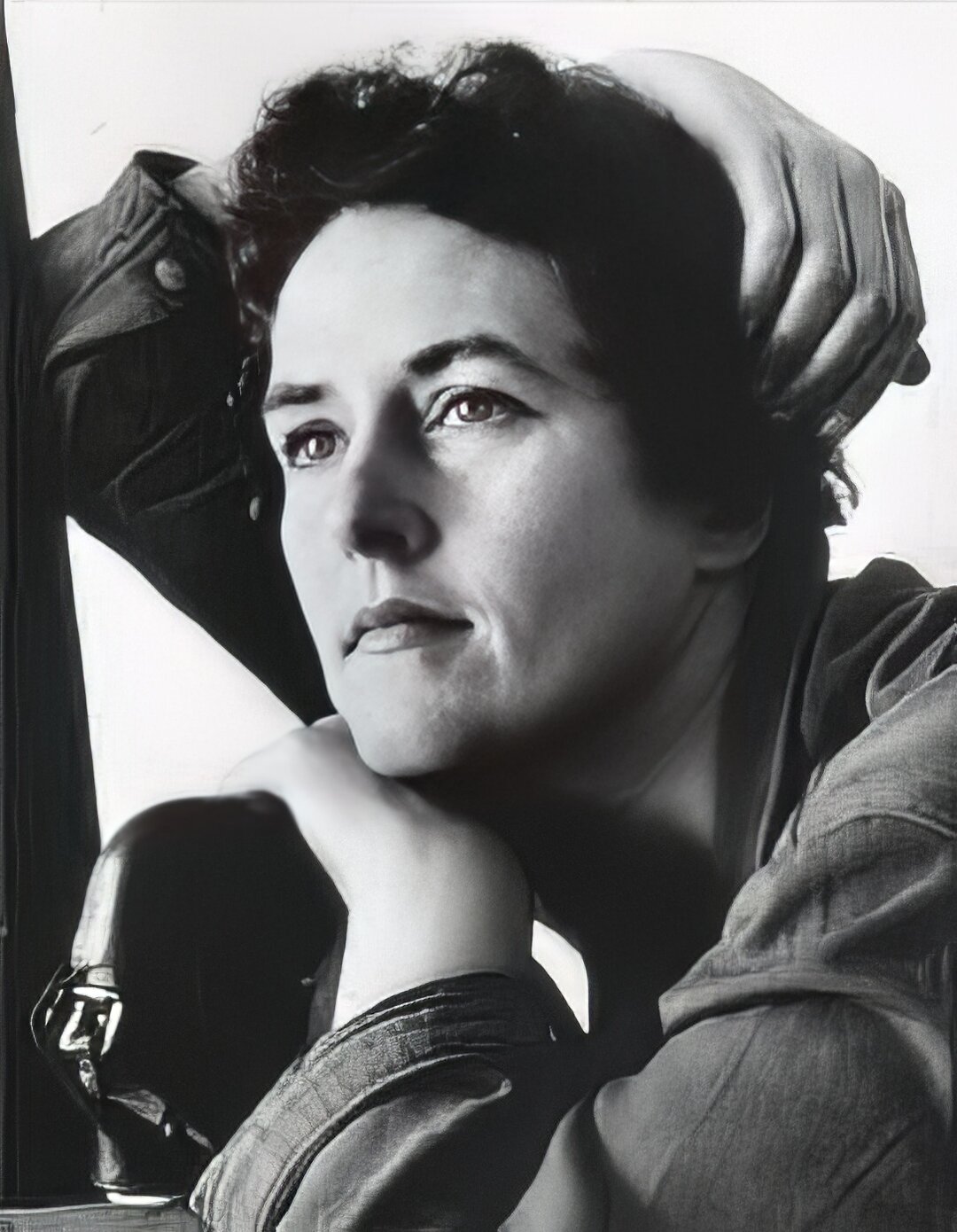
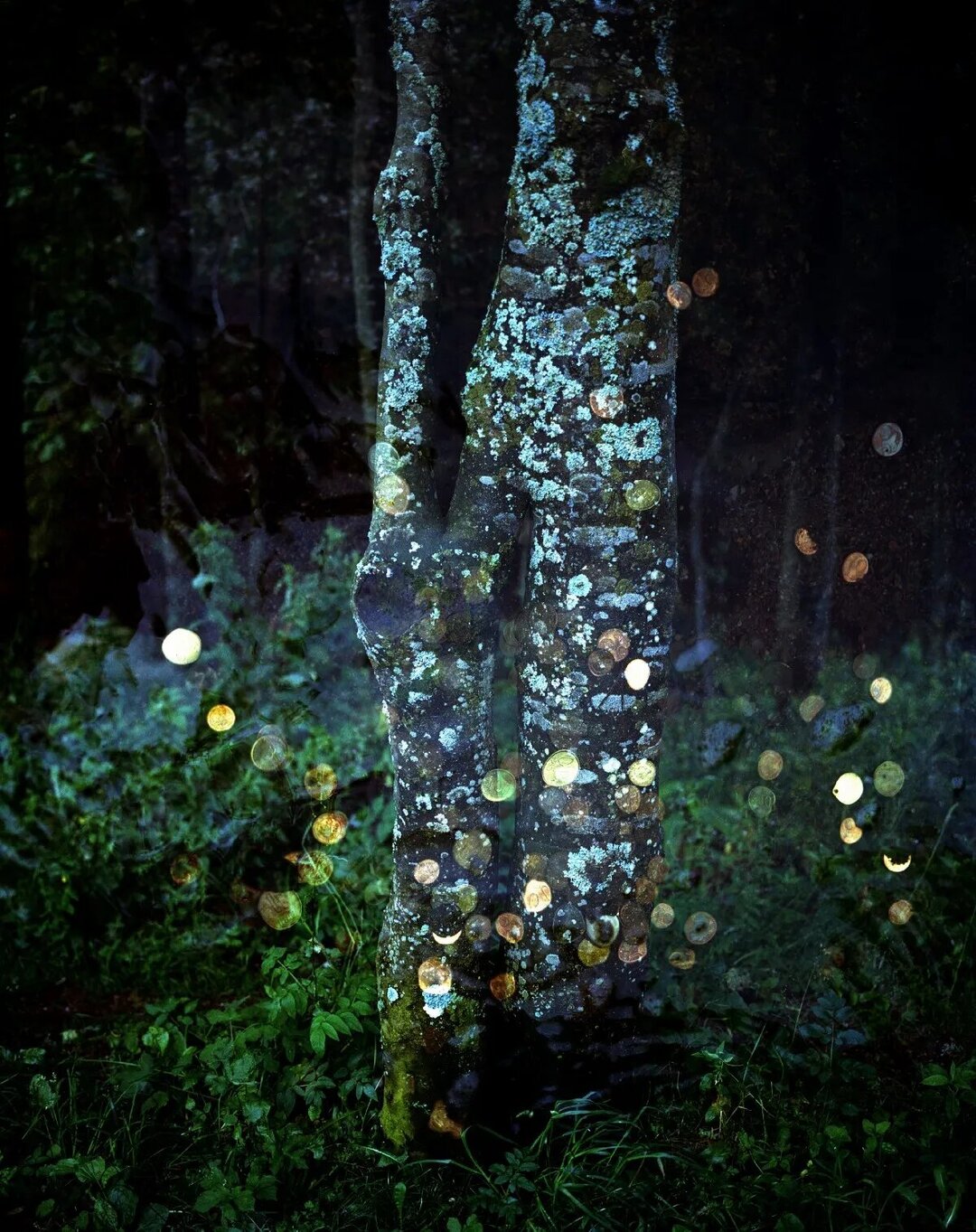
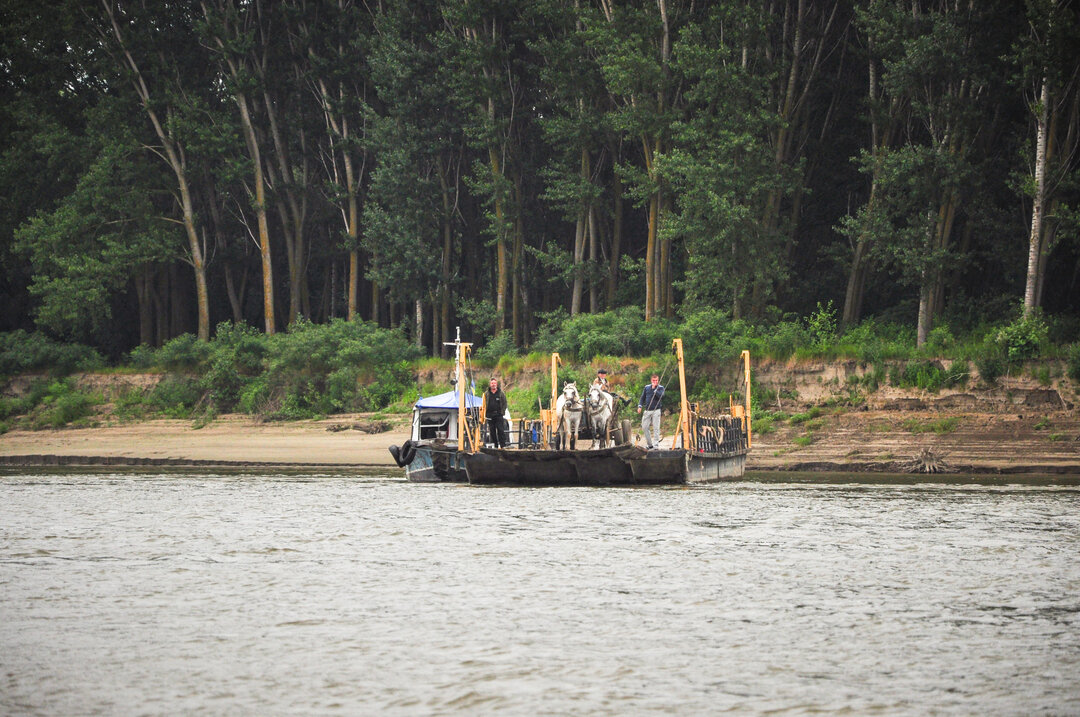
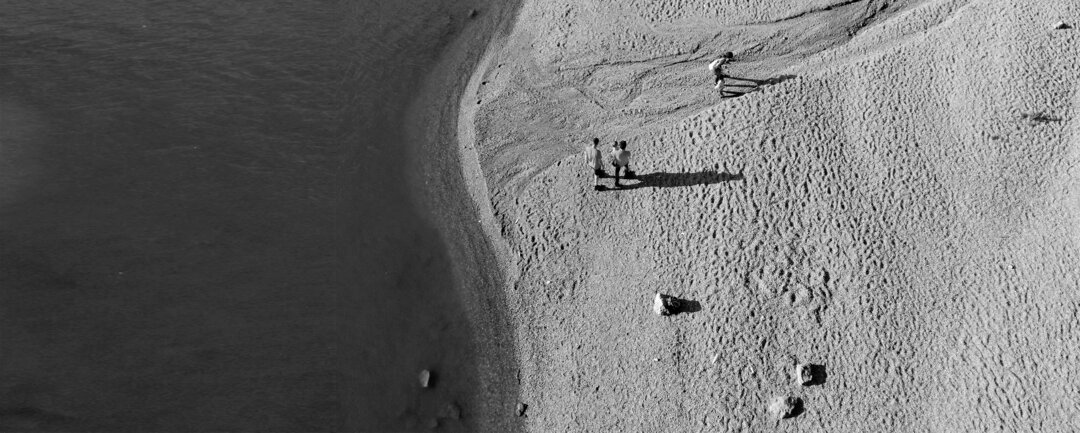
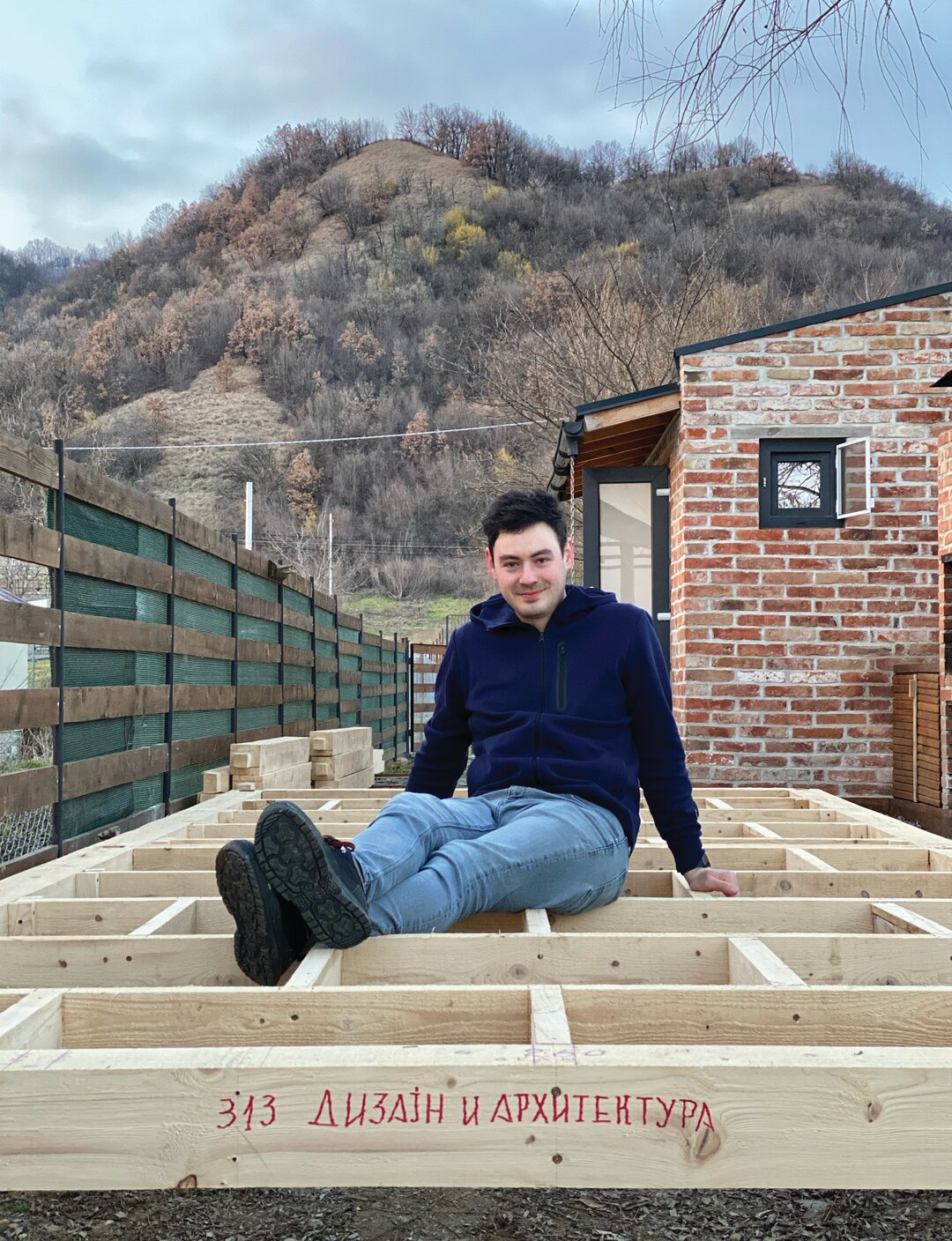
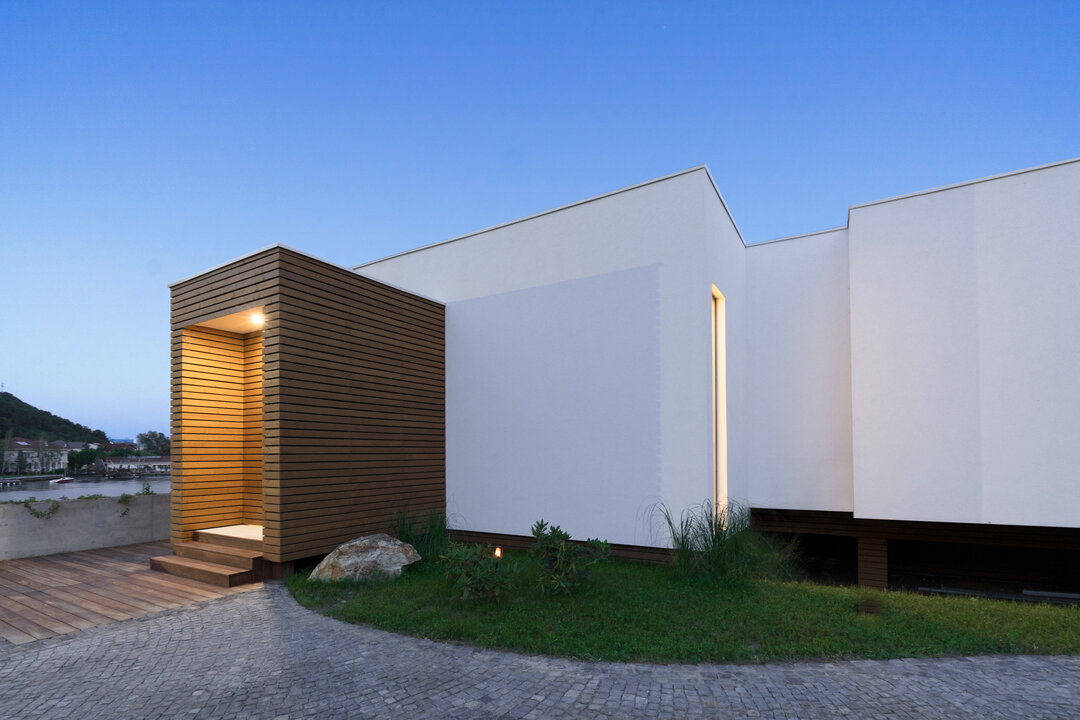
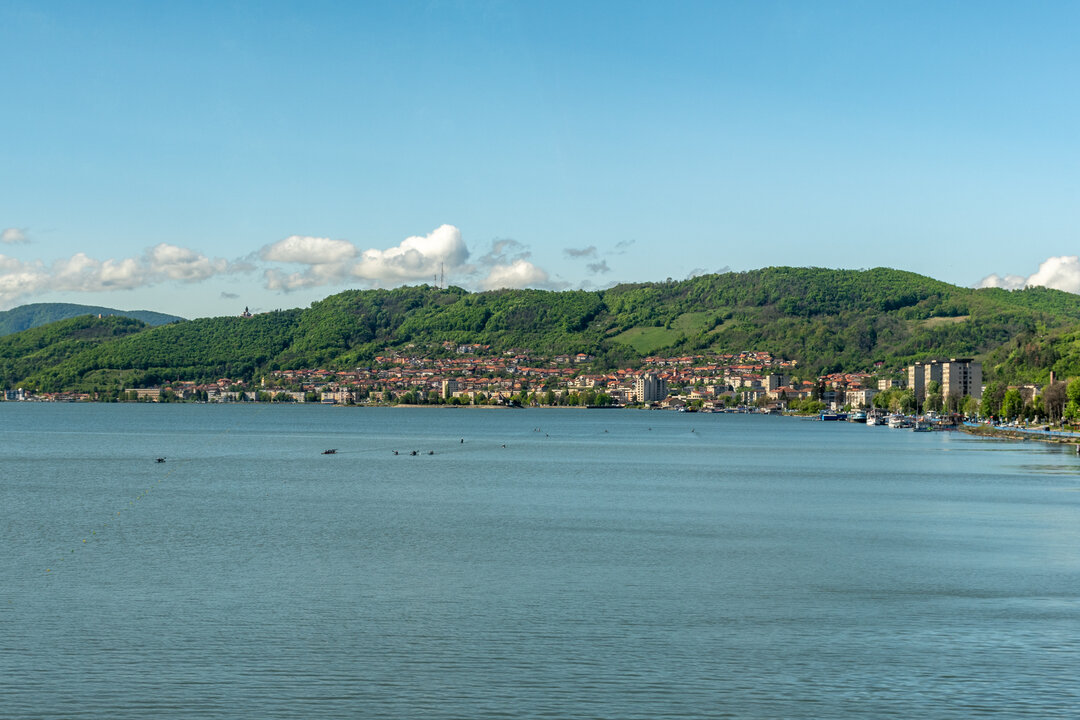
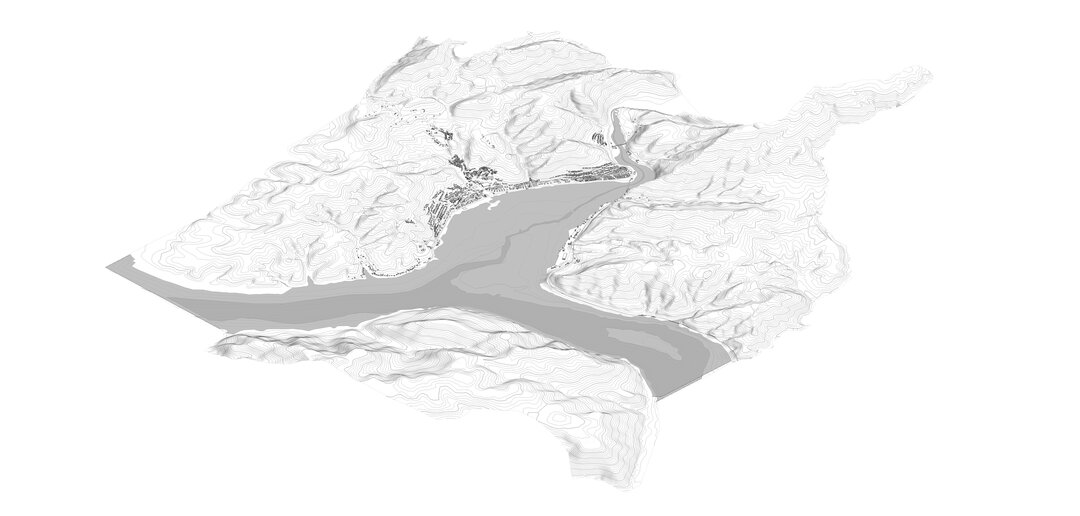
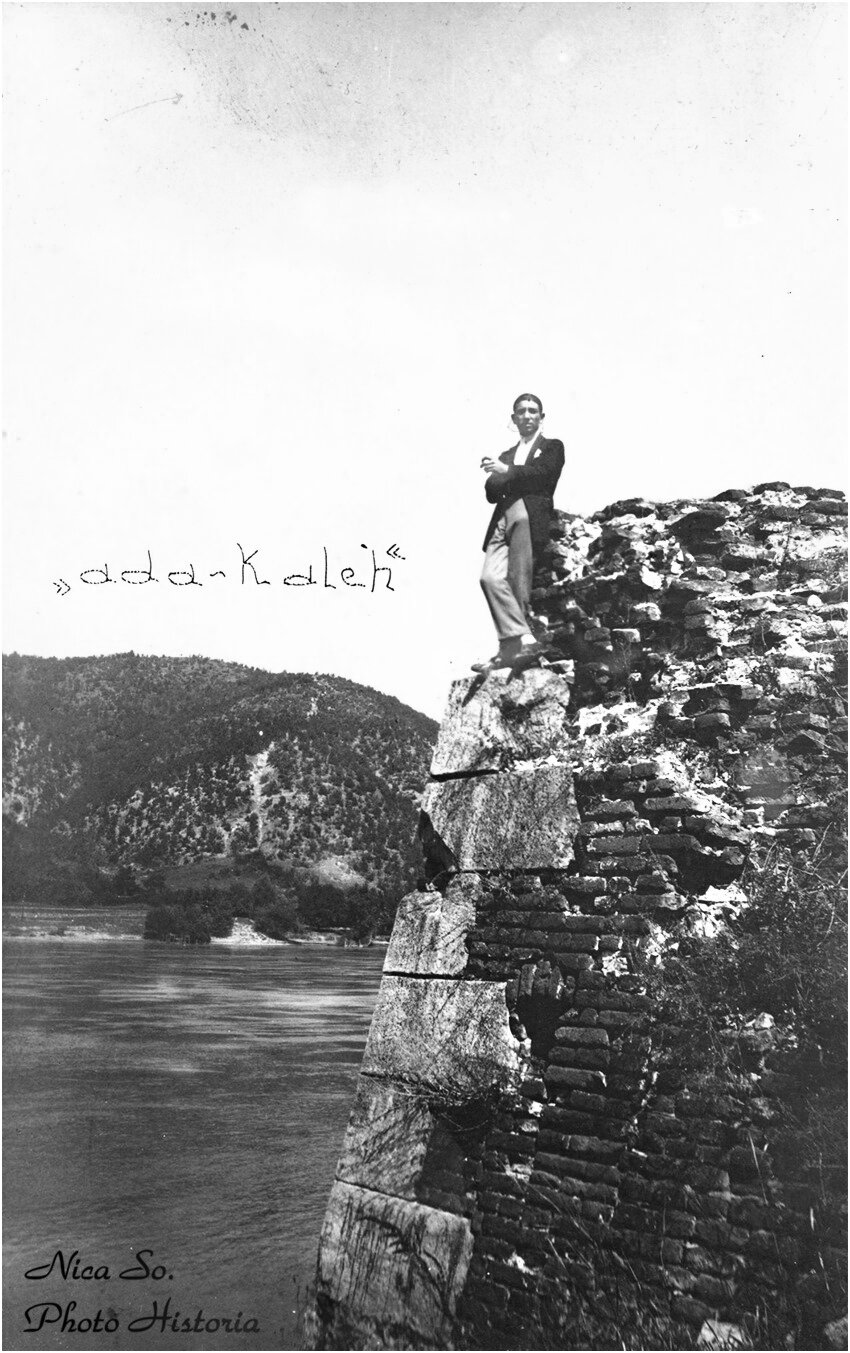
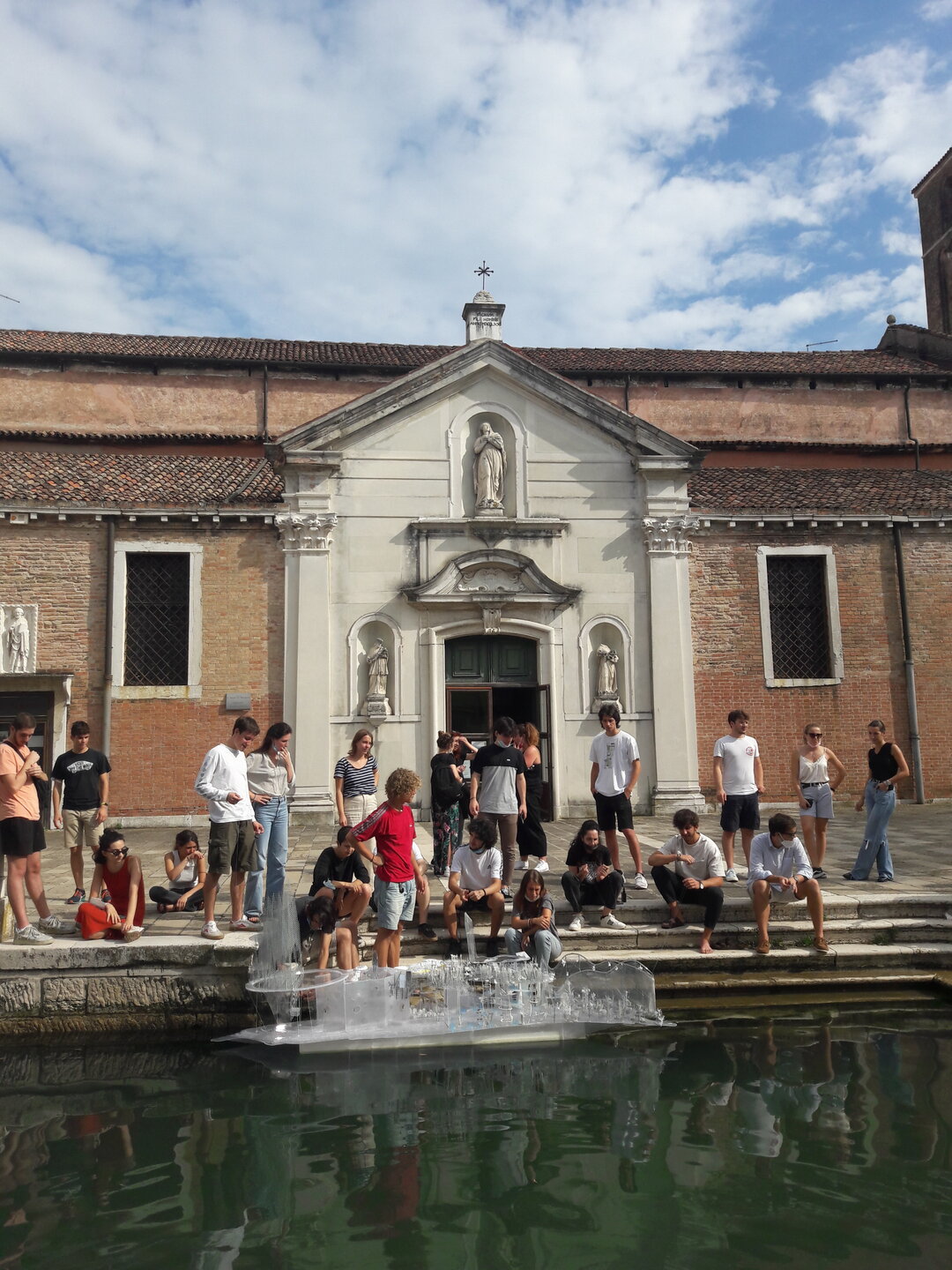
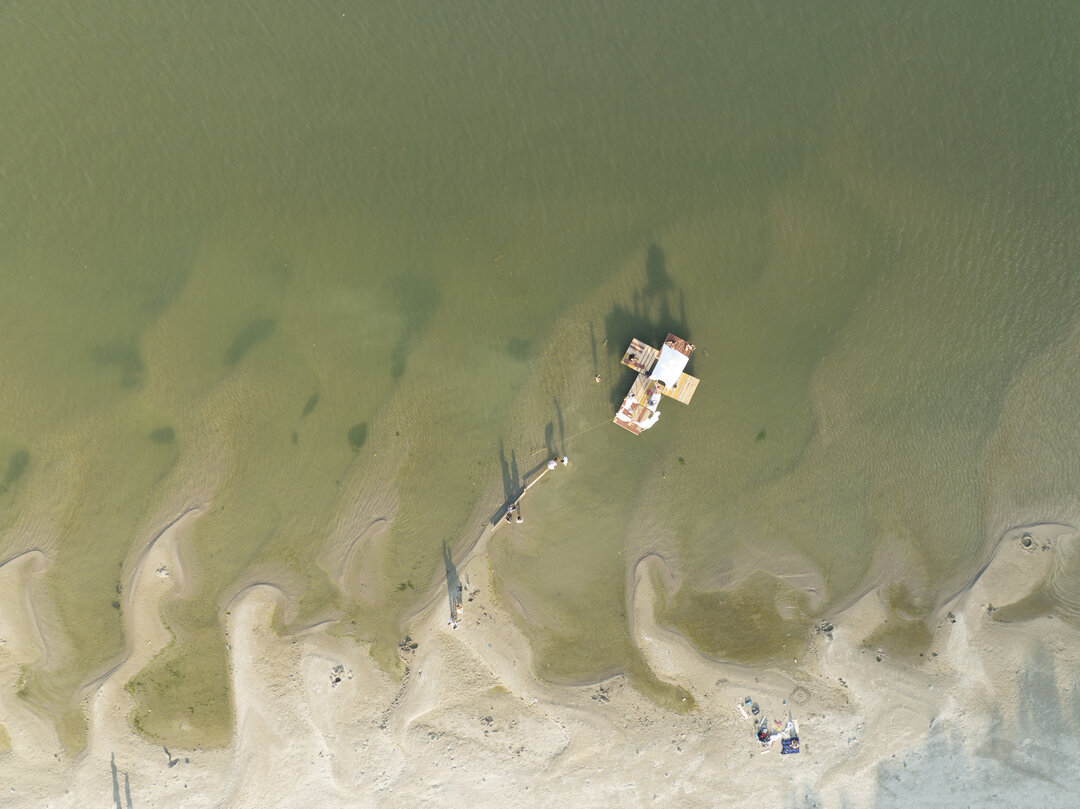
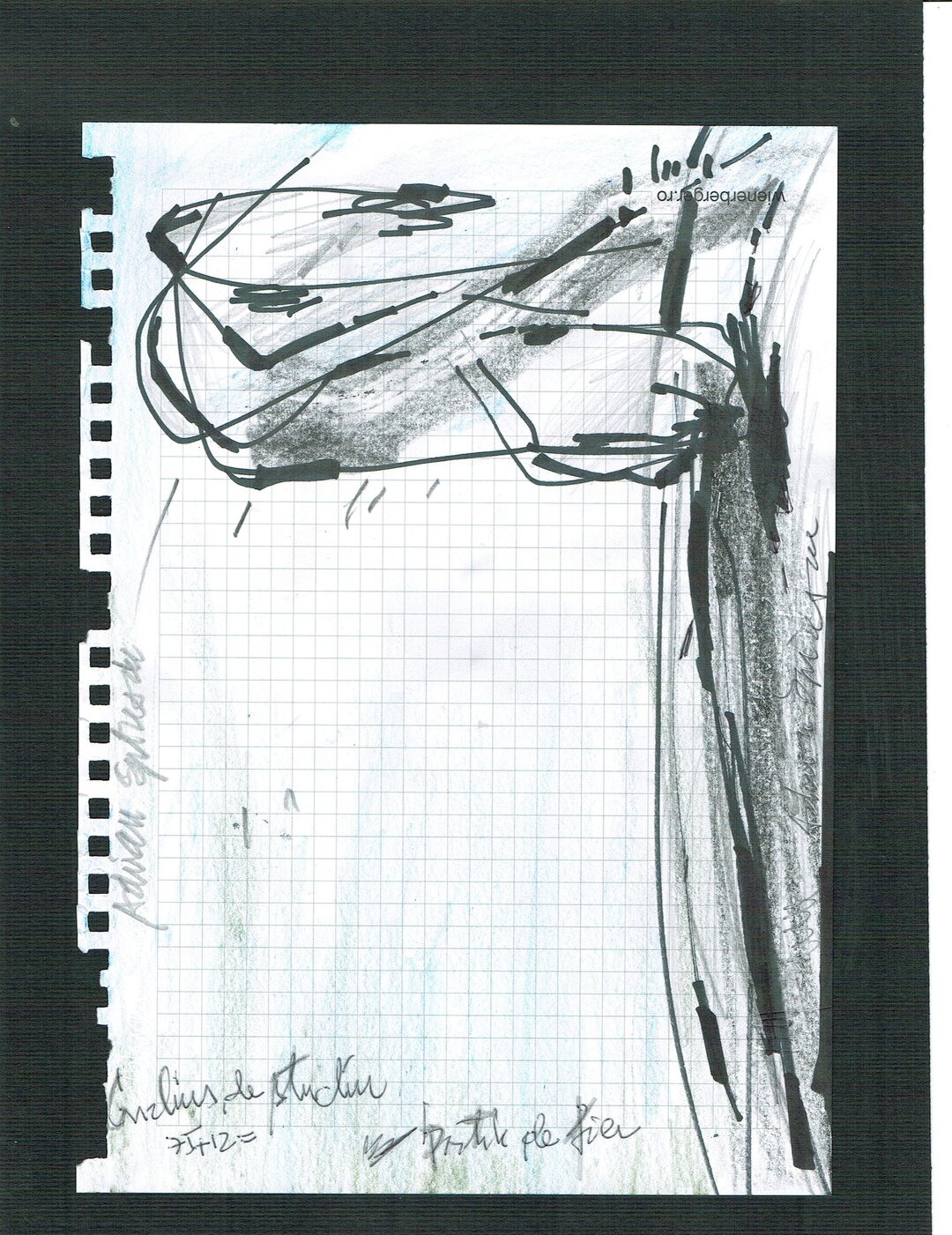
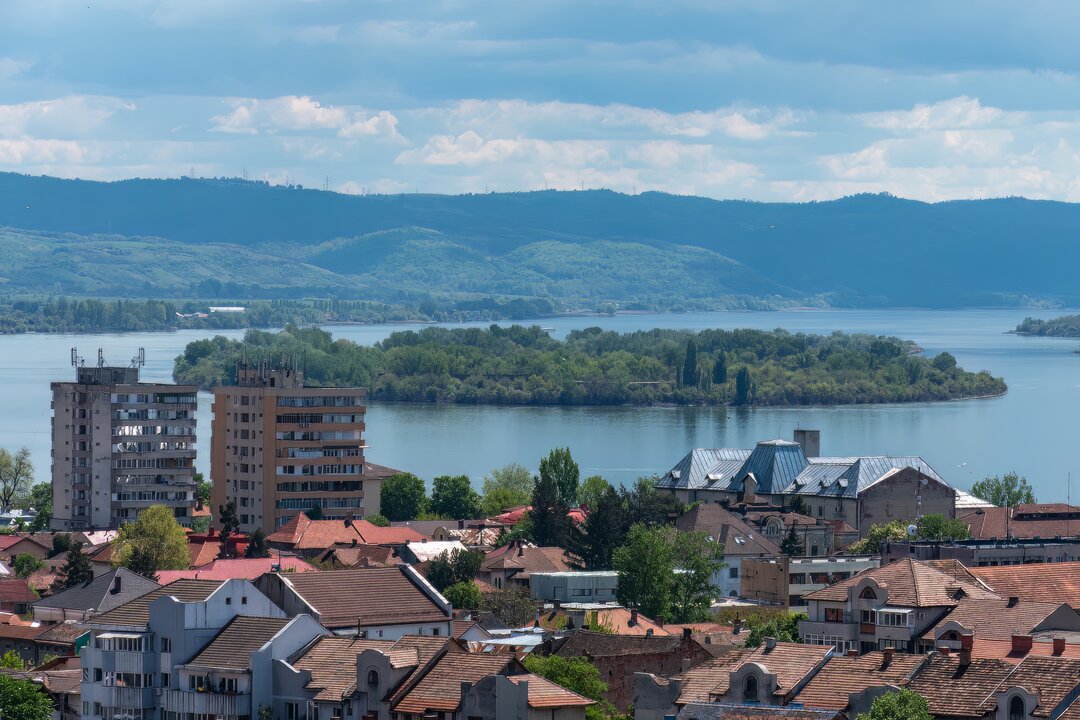
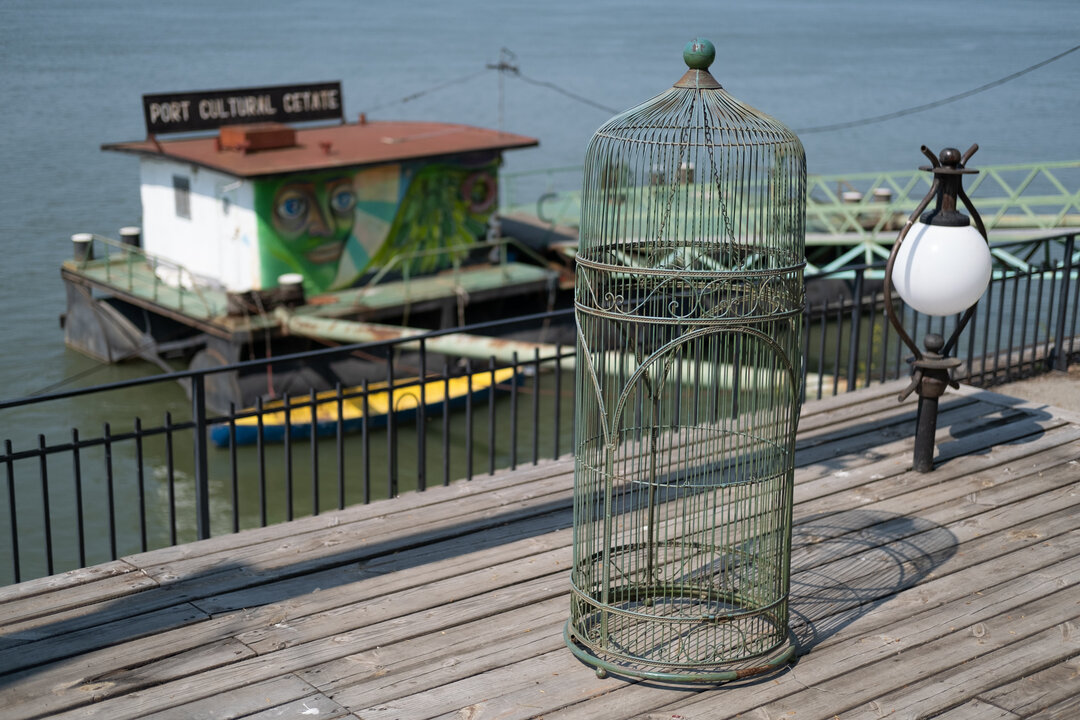
-topaz-denoise-enhance-sharpen--15883-m.jpg)
